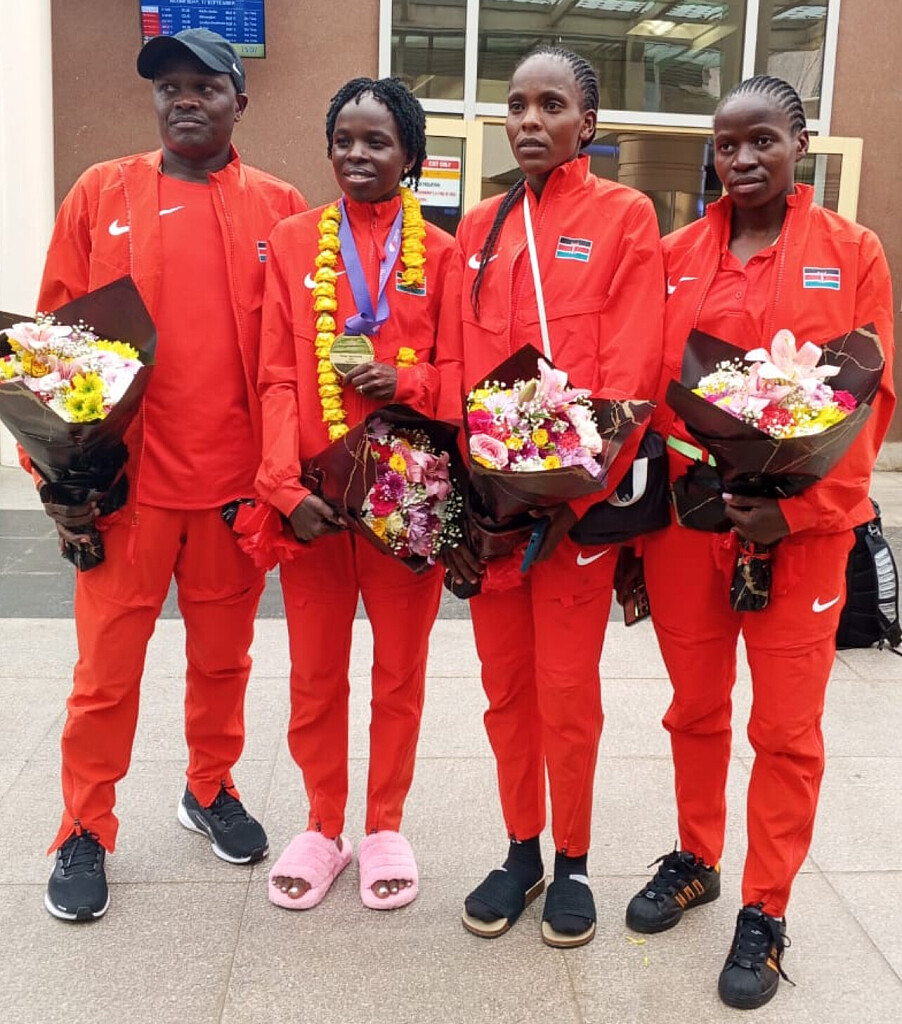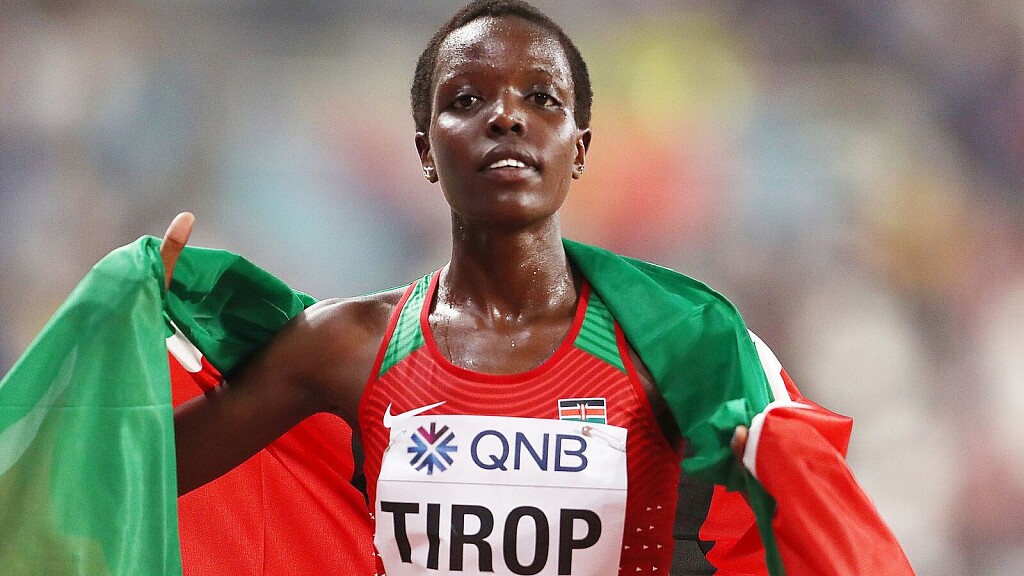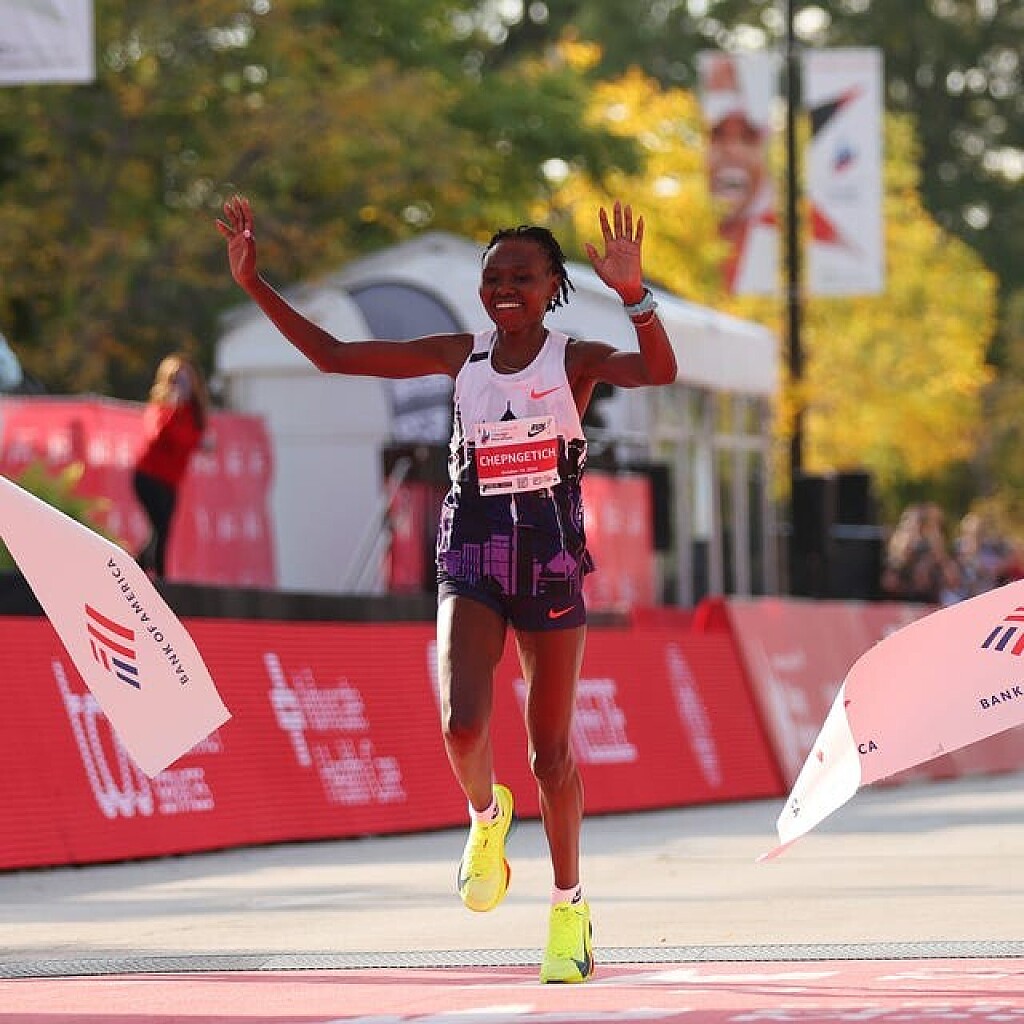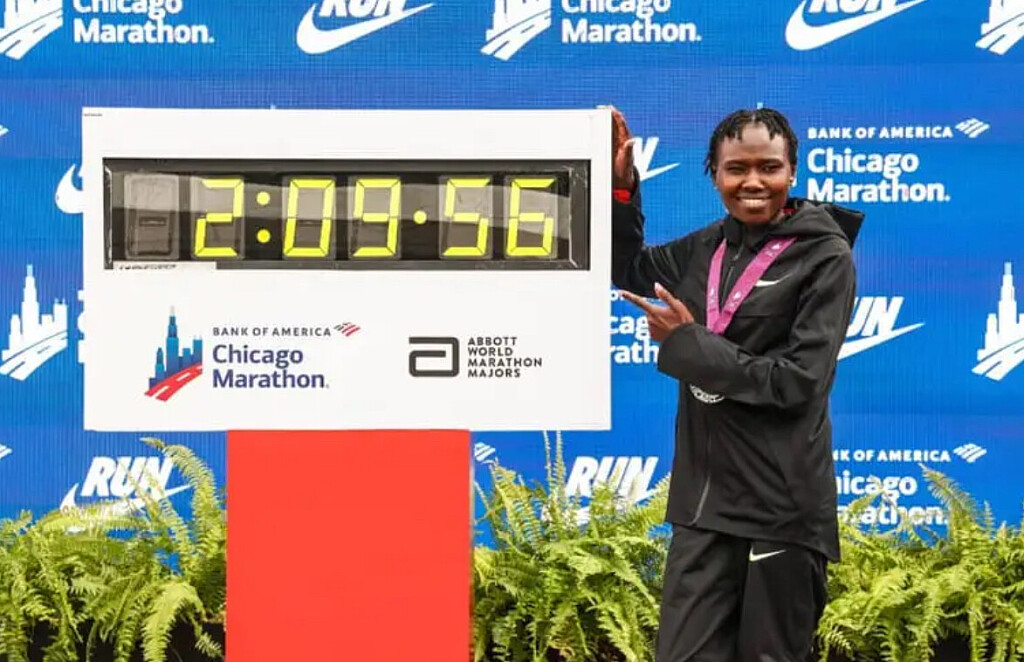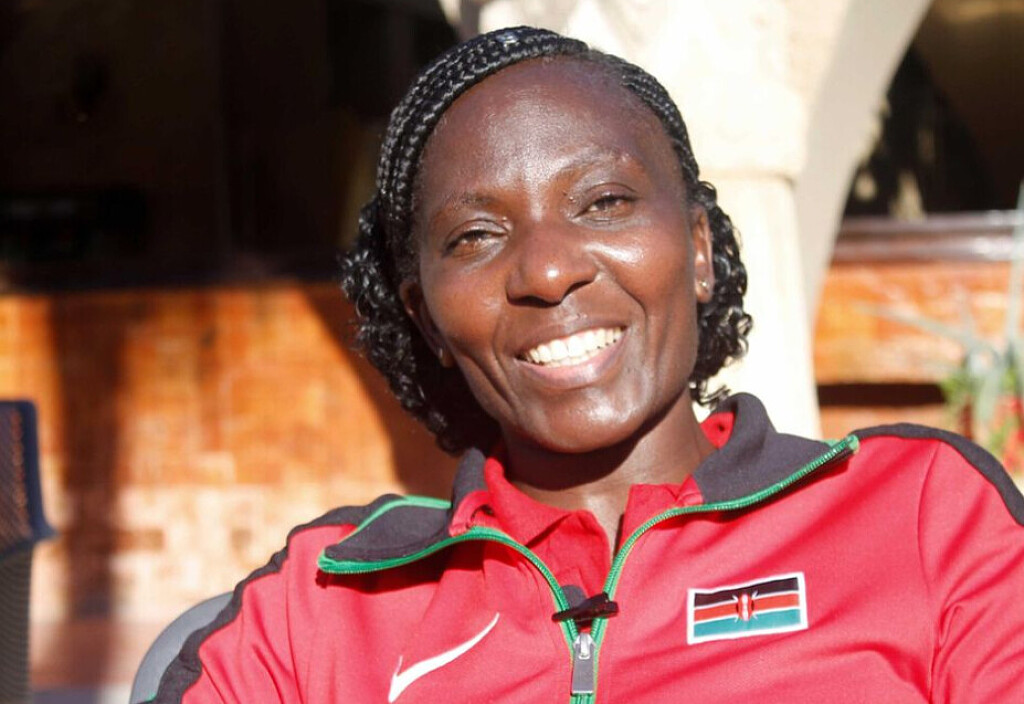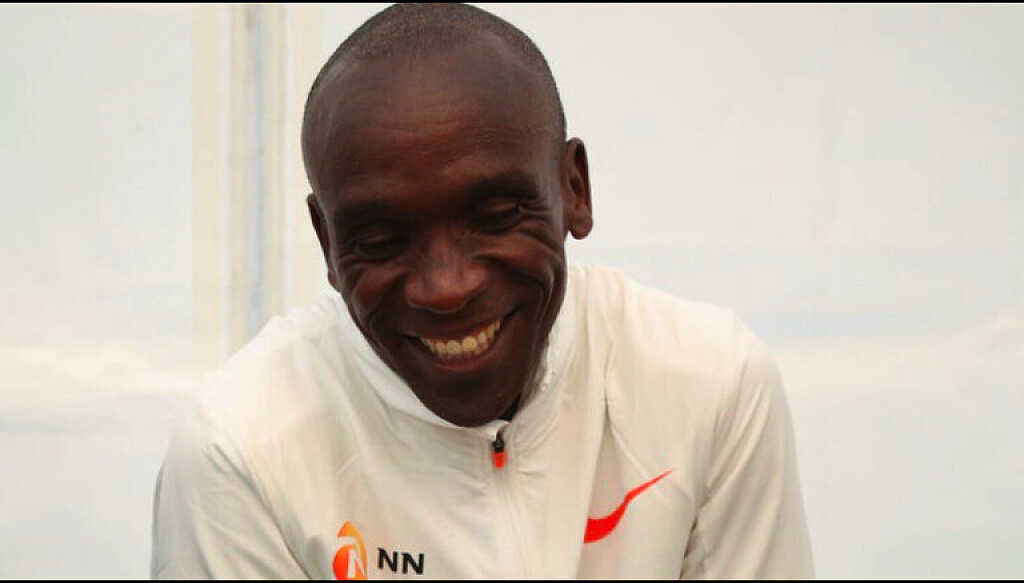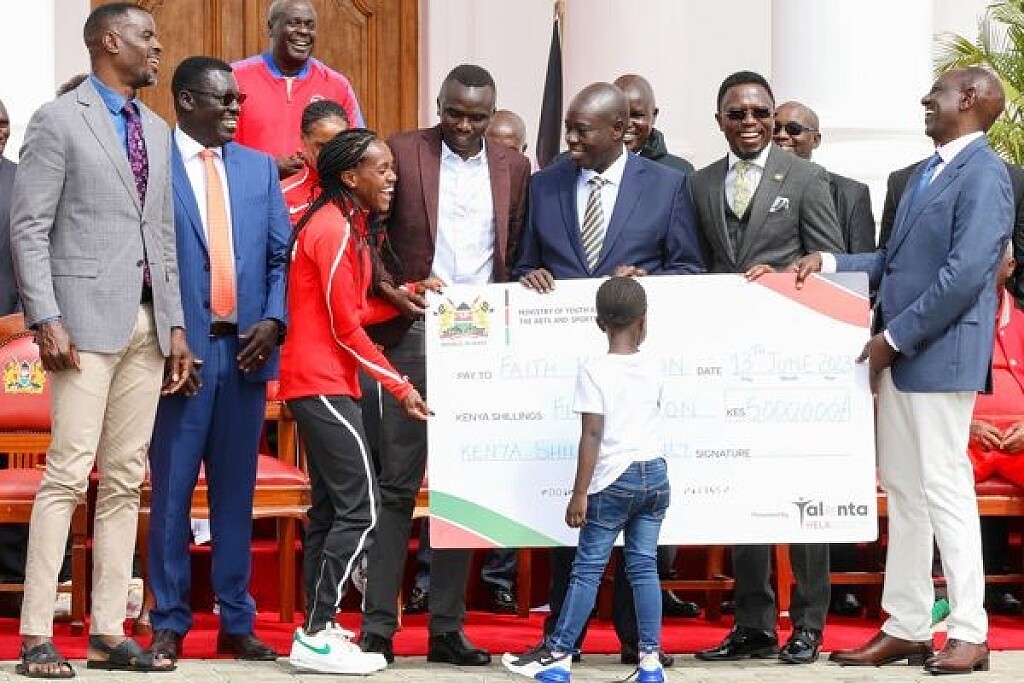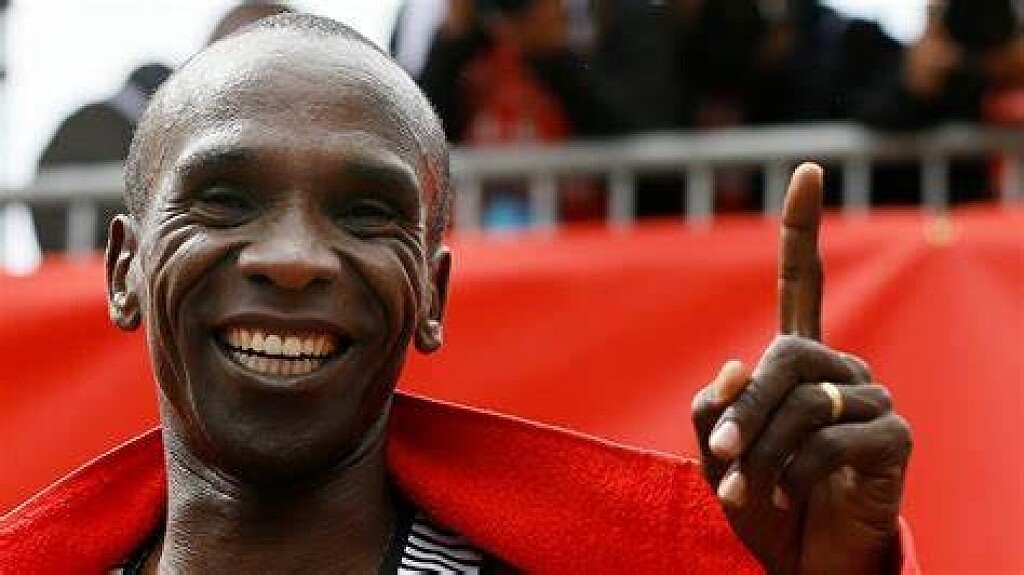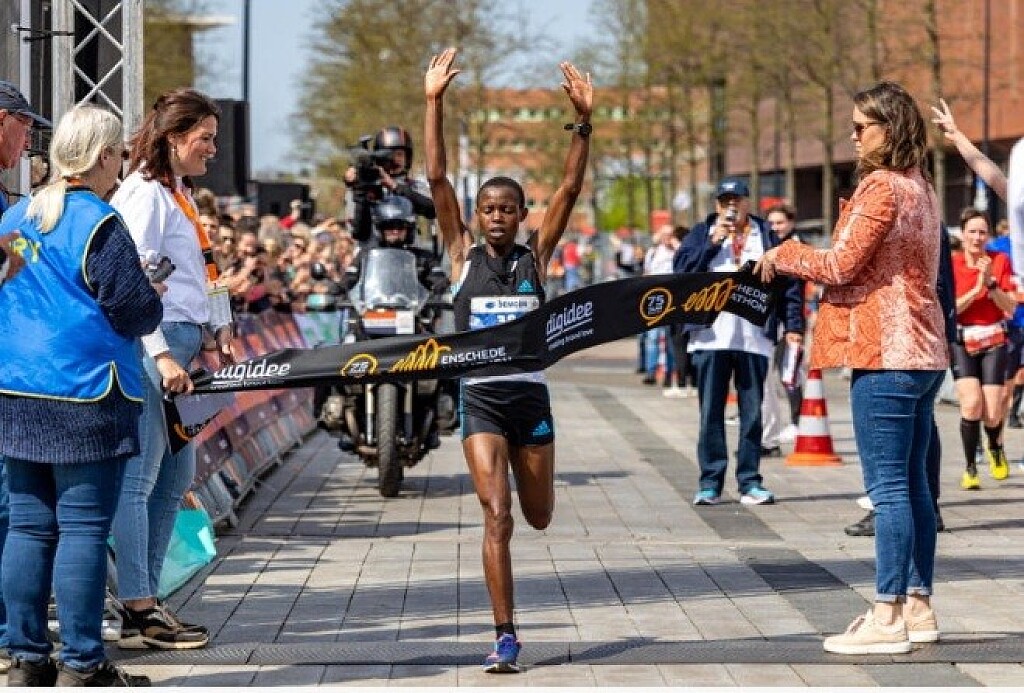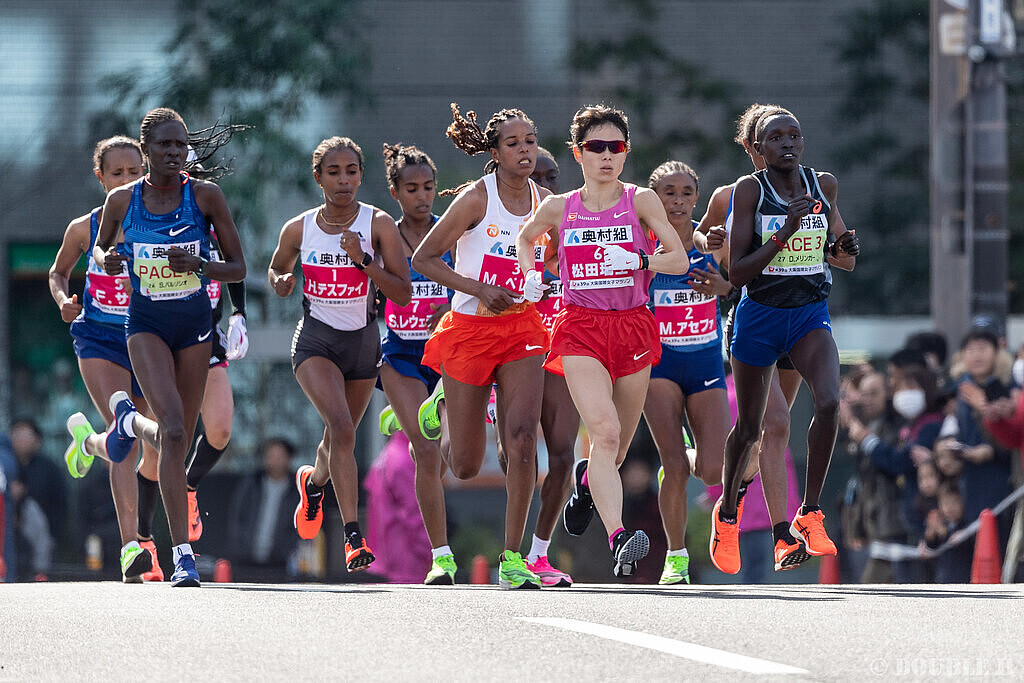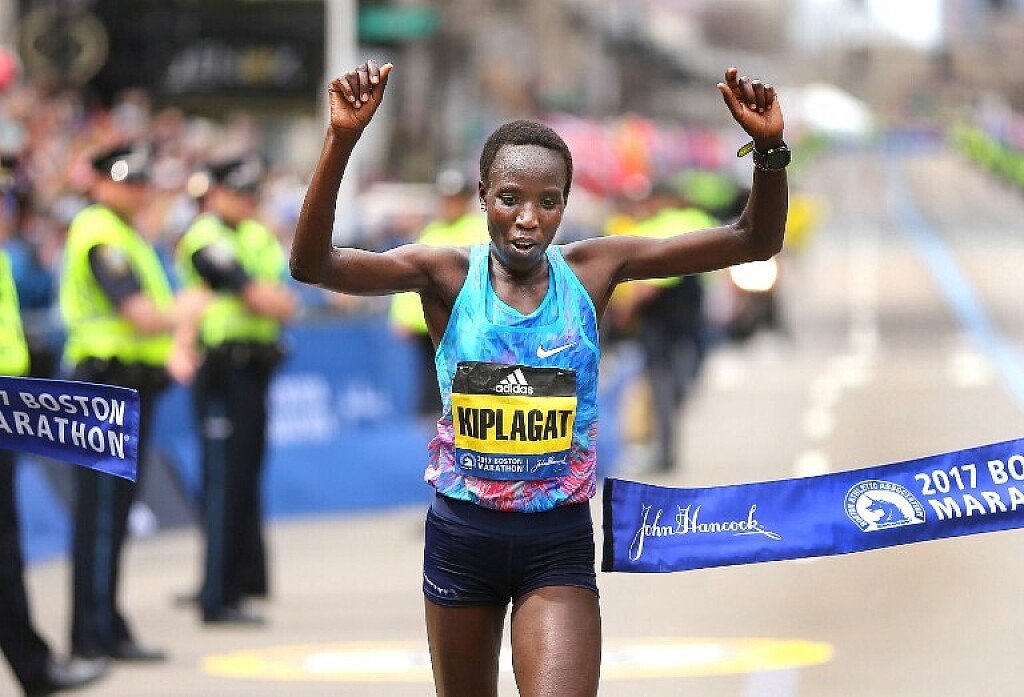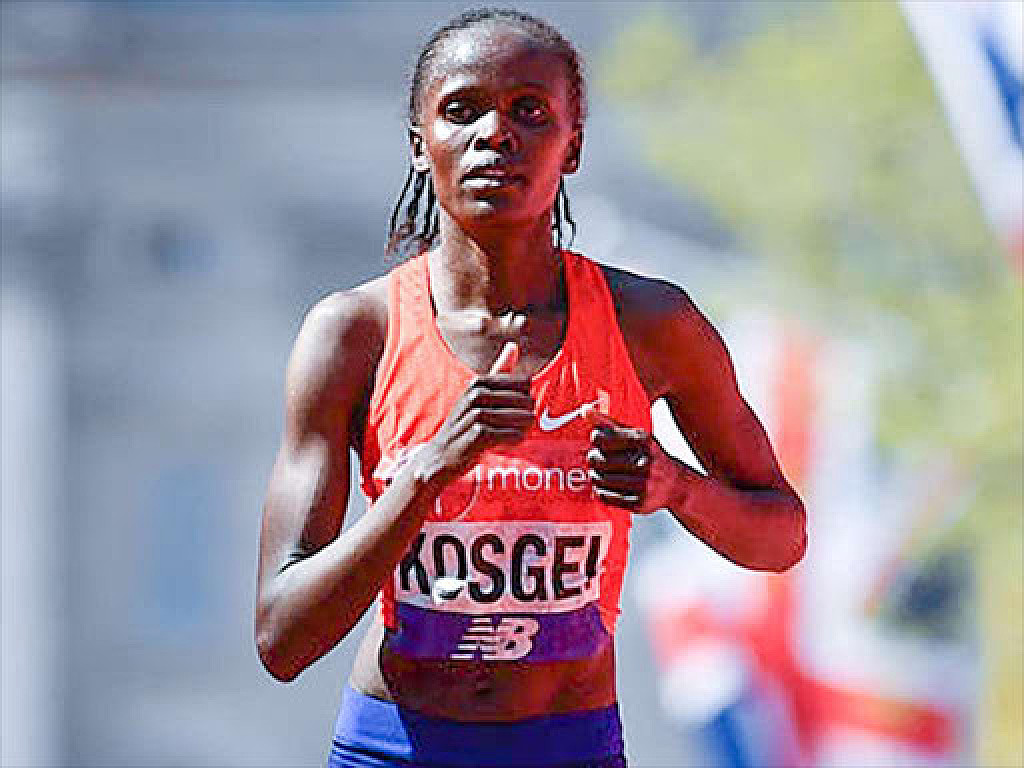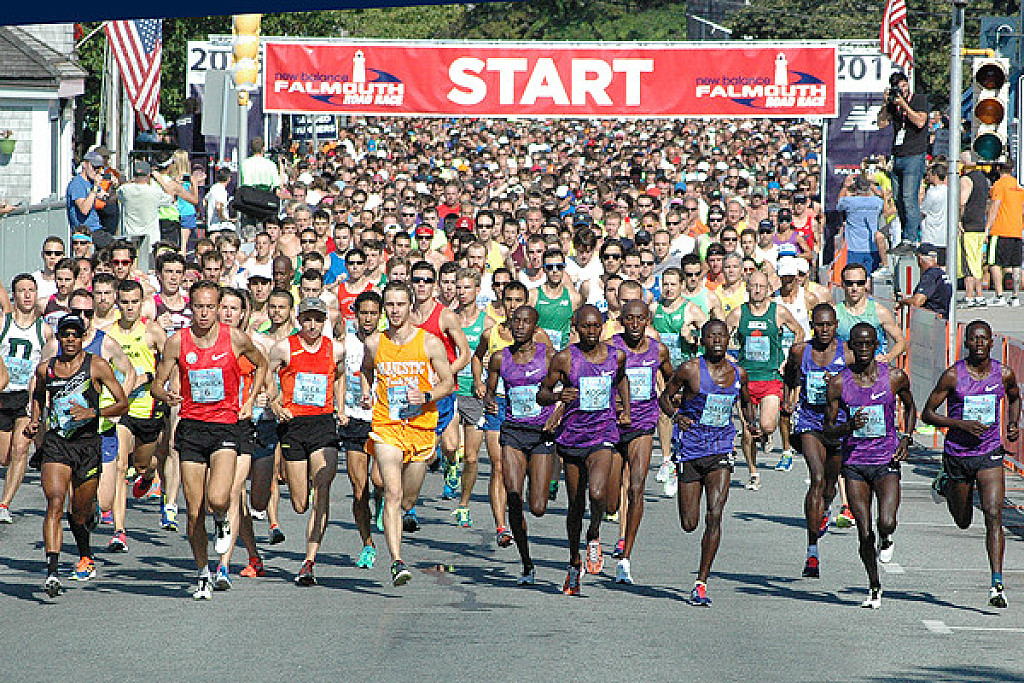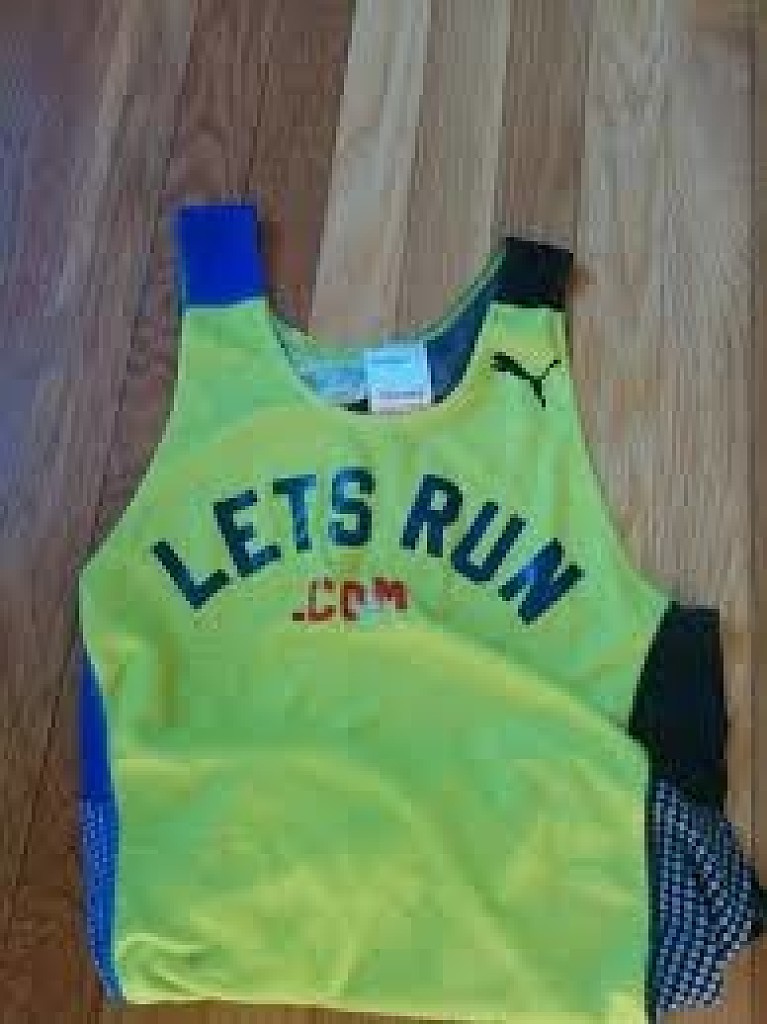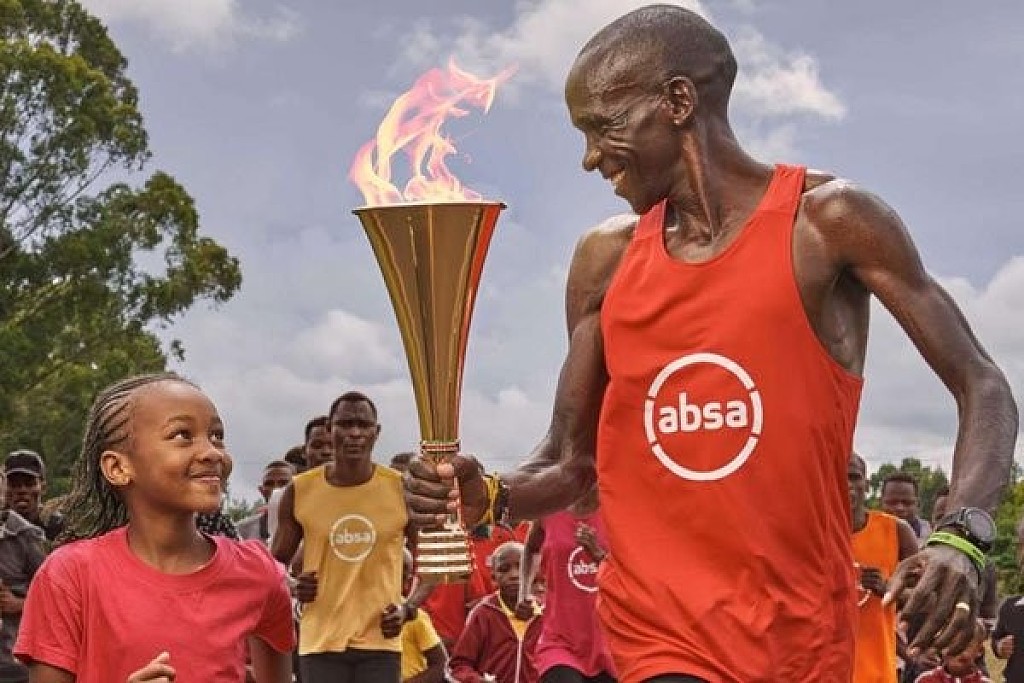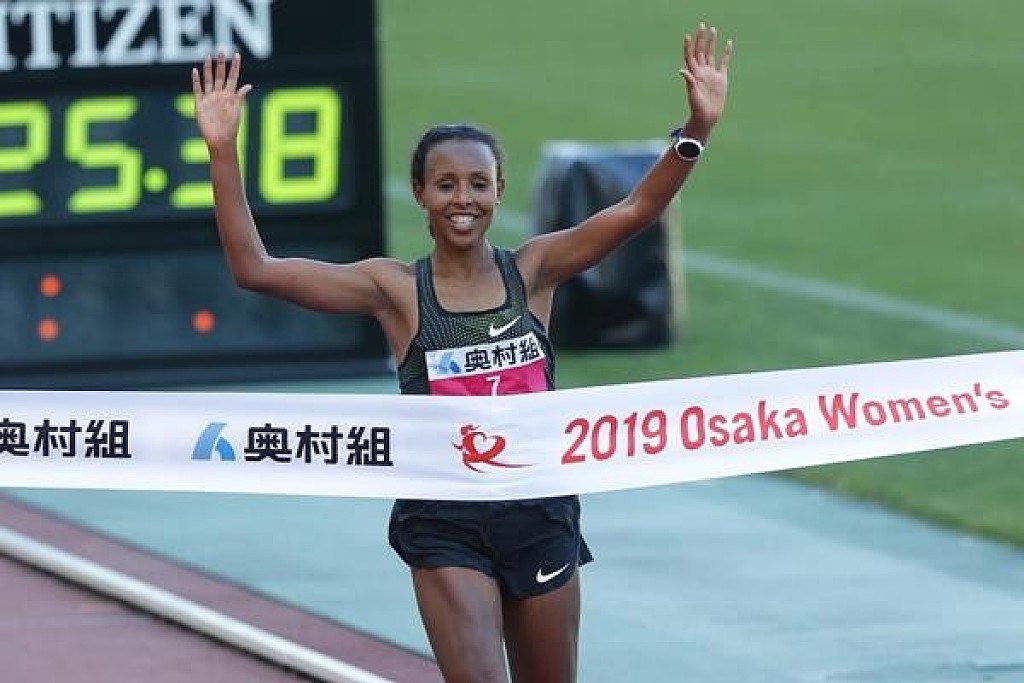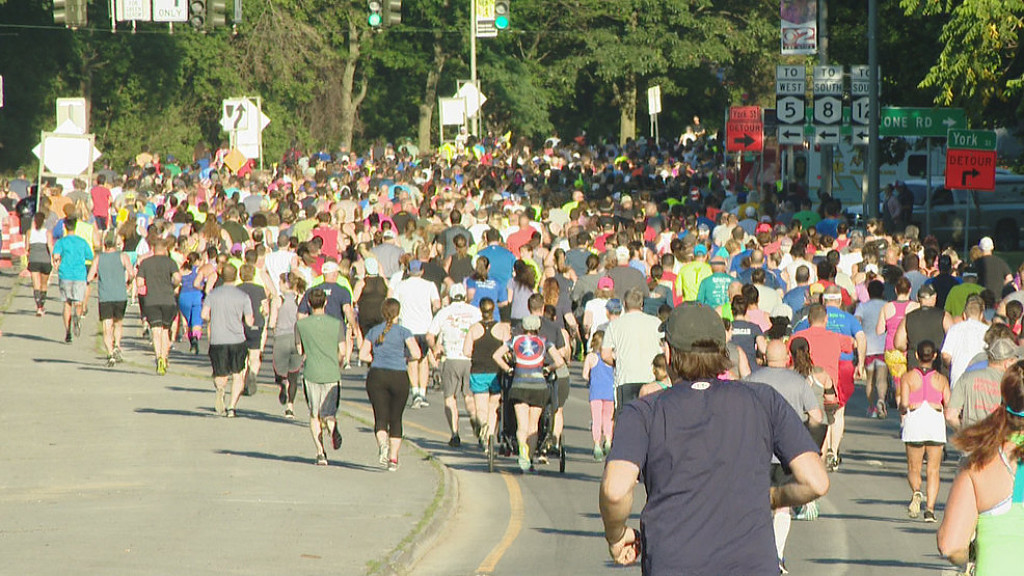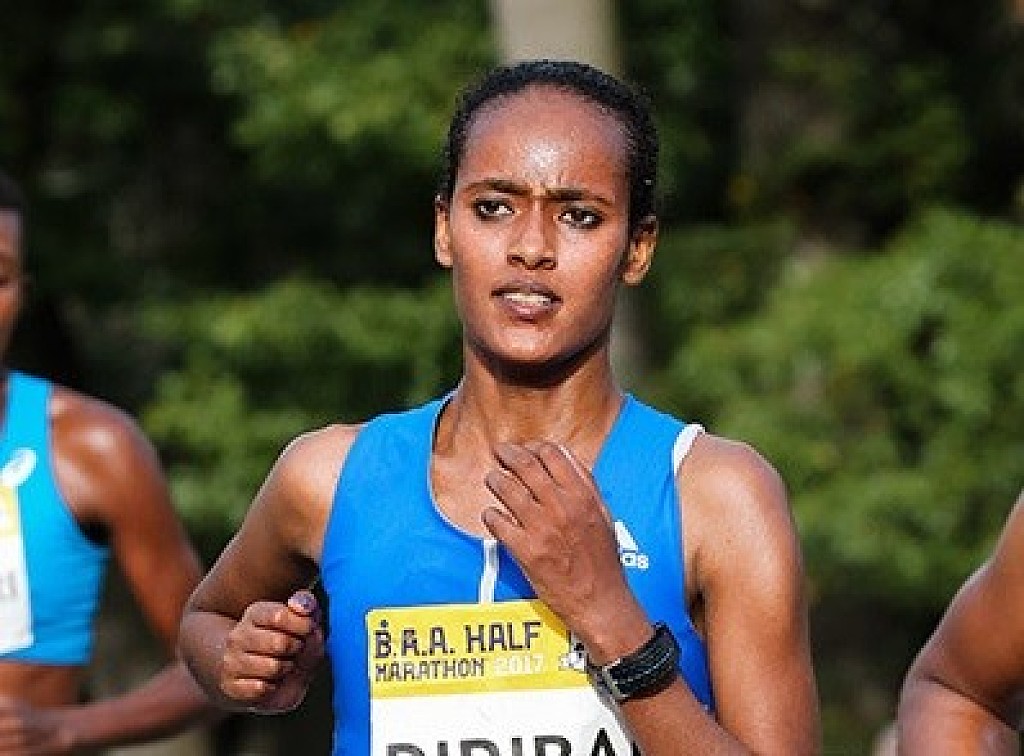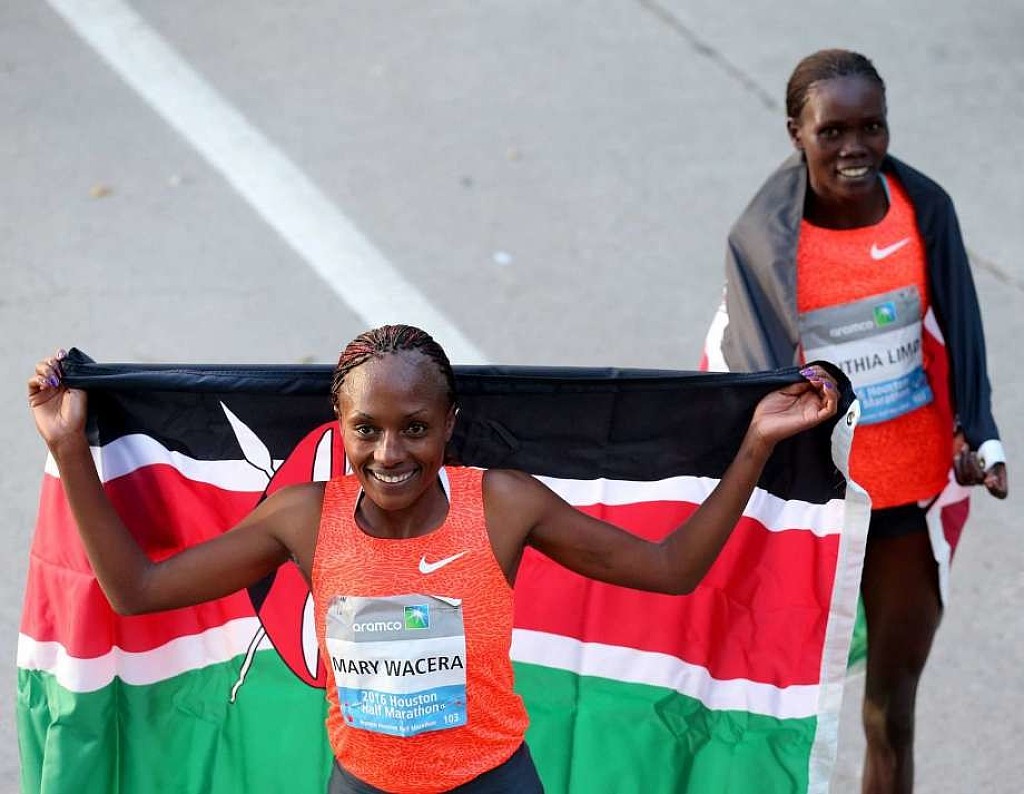Running News Daily
Running News Daily is edited by Bob Anderson. Send your news items to bob@mybestruns.com Advertising opportunities available. Train the Kenyan Way at KATA Kenya and Portugal owned and operated by Bob Anderson. Be sure to catch our movie A Long Run the movie KATA Running Camps and KATA Potato Farms - 31 now open in Kenya! https://kata.ke/
Index to Daily Posts · Sign Up For Updates · Run The World Feed
Articles tagged #Catherine Ndereba
Today's Running News
Kenya’s World Championship Marathon Champion Peres Jepchirchir Returns to Hero’s Welcome in Nairobi
NAIROBI, September 16 – Kenya’s world championship marathon champion, Peres Jepchirchir, arrived home to a hero’s welcome following her golden run at the 2025 World Athletics Championships in Tokyo.
The 31-year-old touched down at Jomo Kenyatta International Airport (JKIA) on Tuesday morning, where she was greeted by traditional dancers, cheering fans, and a delegation of government and athletics officials. She was joined by teammates Jackline Cherono, Magdalene Masai, and Janeth Ng’etich, forming the first group of Team Kenya athletes to return from Tokyo. The reception was both a celebration of her individual triumph and a testament to Kenya’s enduring dominance in distance running.
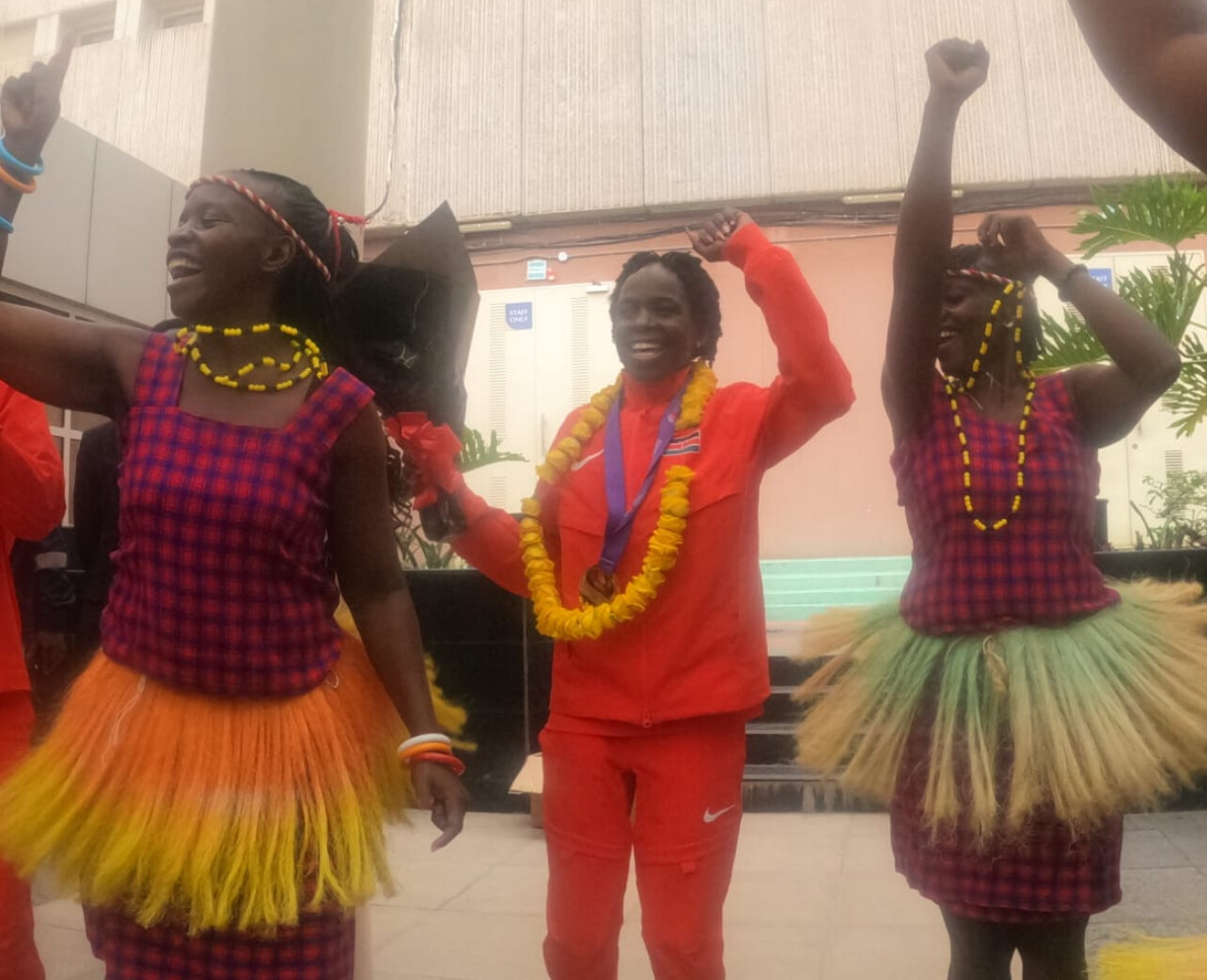
A Marathon Masterclass in Tokyo
Jepchirchir’s victory was marked by patience, grit, and precision. Competing in soaring temperatures against a formidable Ethiopian contingent, she conserved her energy in the lead pack before making a decisive late surge to secure gold.
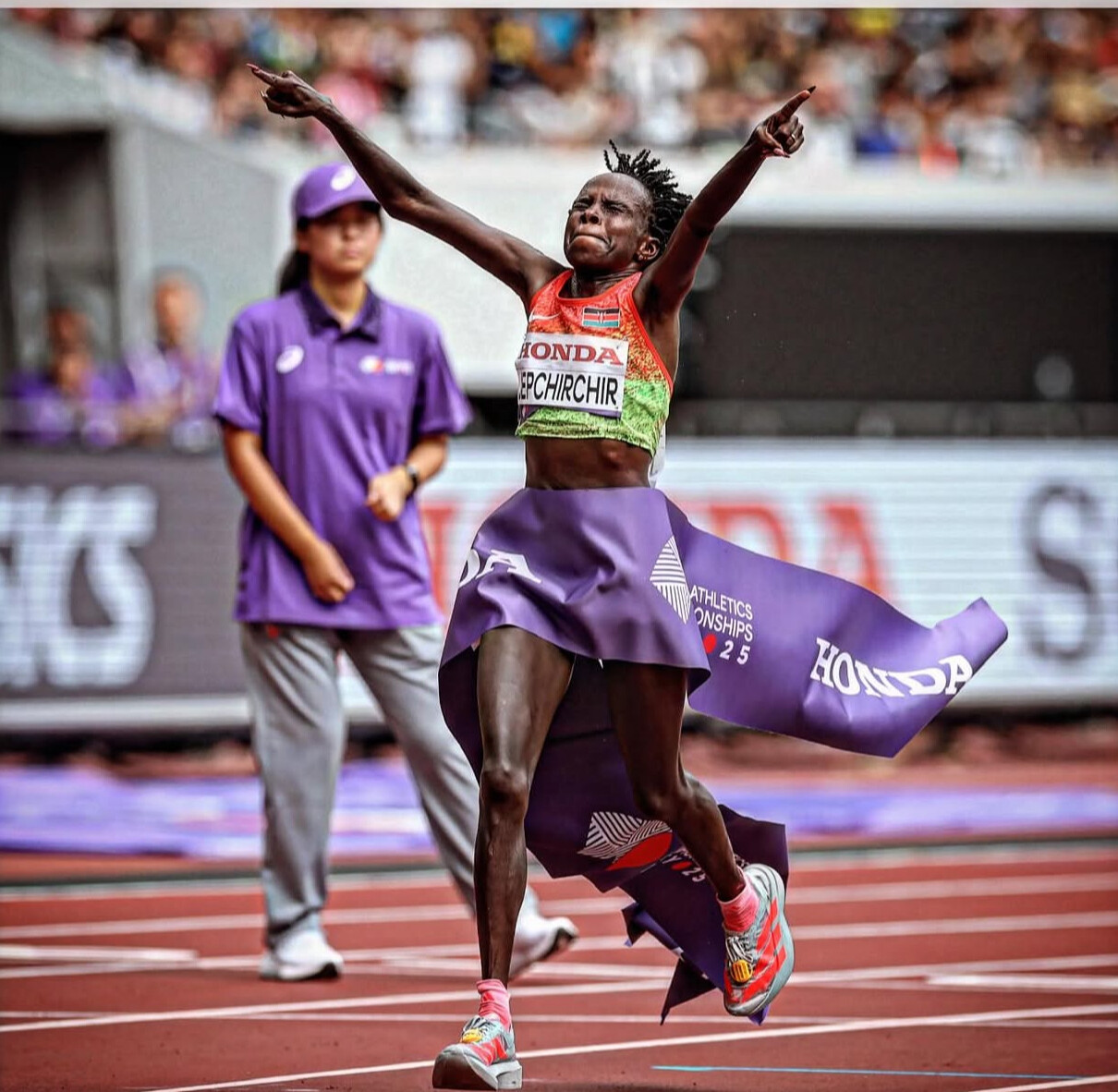
“From the beginning to the end, Peres believed in herself,” said long-distance coach Joseph Kahugu, who followed the race from the Tokyo course. “It was tough, especially against Ethiopia, but she showed her strength, fought hard, and delivered. We are proud of her.”
Her win reaffirmed her place among the greats: an Olympic champion, a two-time New York City Marathon winner, and now a world championship marathon gold medalist.
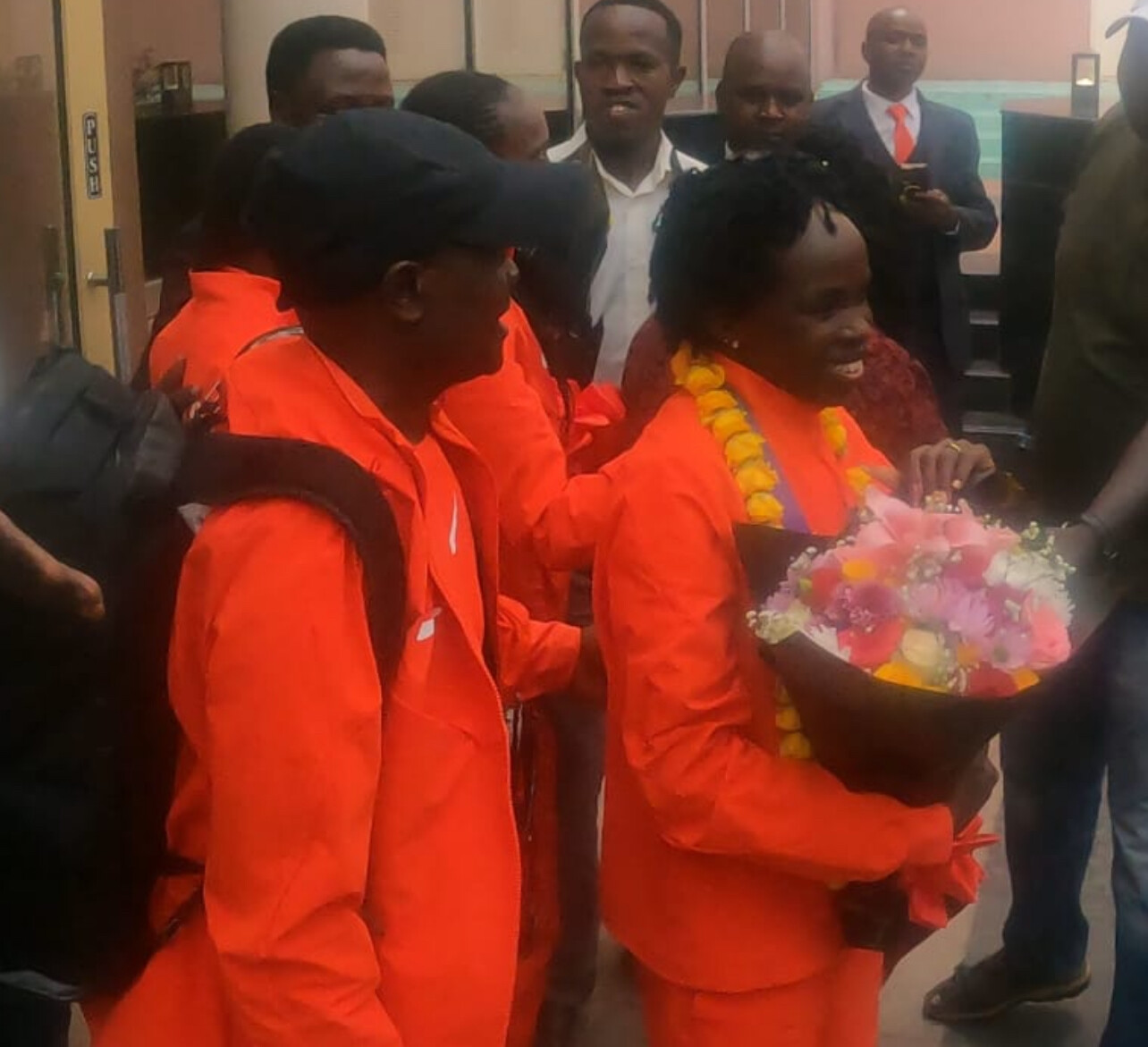
Government and Athletics Kenya Celebrate
Representing the Ministry of Sports, Jonah Towett assured the athletes of ongoing government backing.
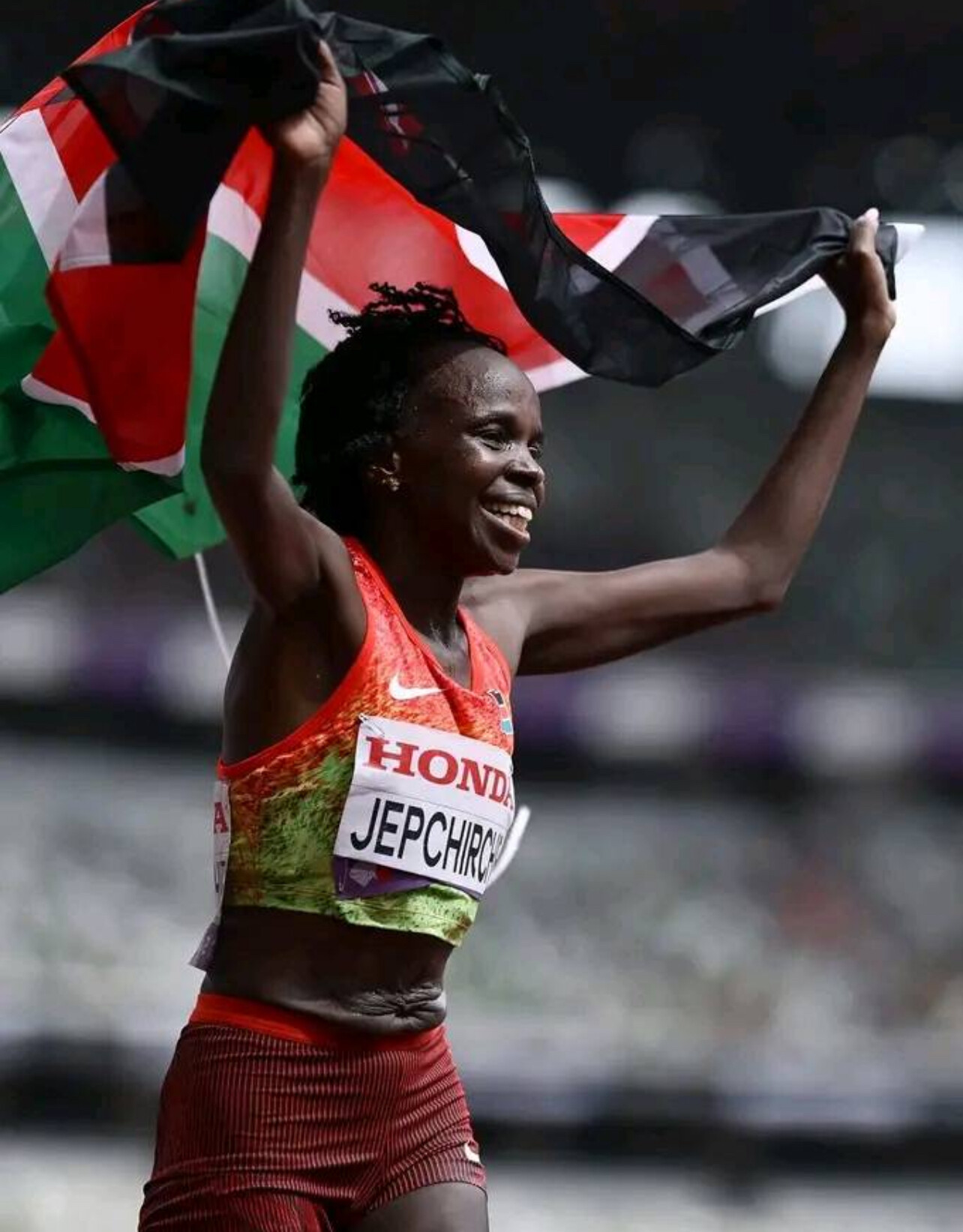
“This is a big day,” Towett said. “We are delighted to welcome our team back home. We congratulate them, especially our gold medalists, and assure them of our full support."
Athletics Kenya (AK) was equally visible at the welcome event, with officials led by Elizabeth Keitany. Keitany, praised Jepchirchir’s achievement and expressed optimism about the rest of Team Kenya still competing in Tokyo.
“We congratulate Peres for making Kenya proud,” Mary Keitany said. “Her victory is an inspiration, and we are confident more medals will come from Tokyo.”
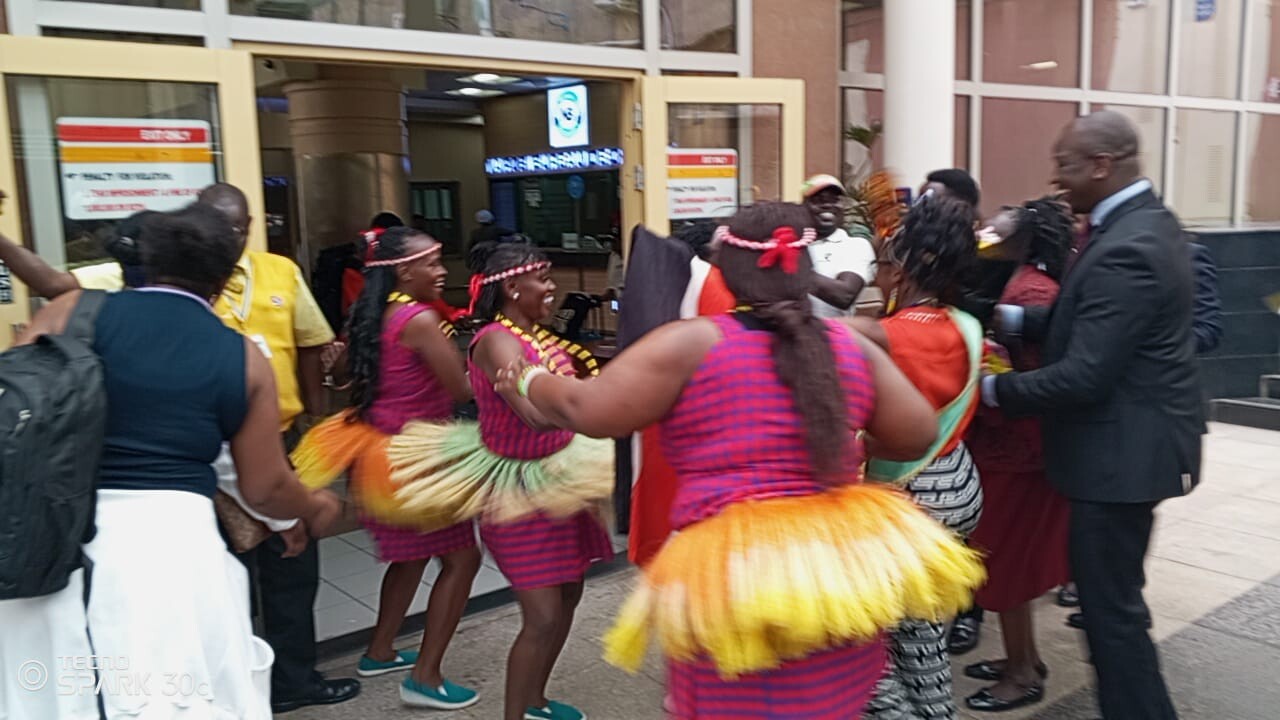
Preparing for the Heat
Coach Kahugu explained that Tokyo’s humidity posed a challenge, but adjustments paid off. “In Kenya, we didn’t train in such hot conditions. Once in Tokyo, we shifted to midday sessions to adapt. That preparation made all the difference,” he said.
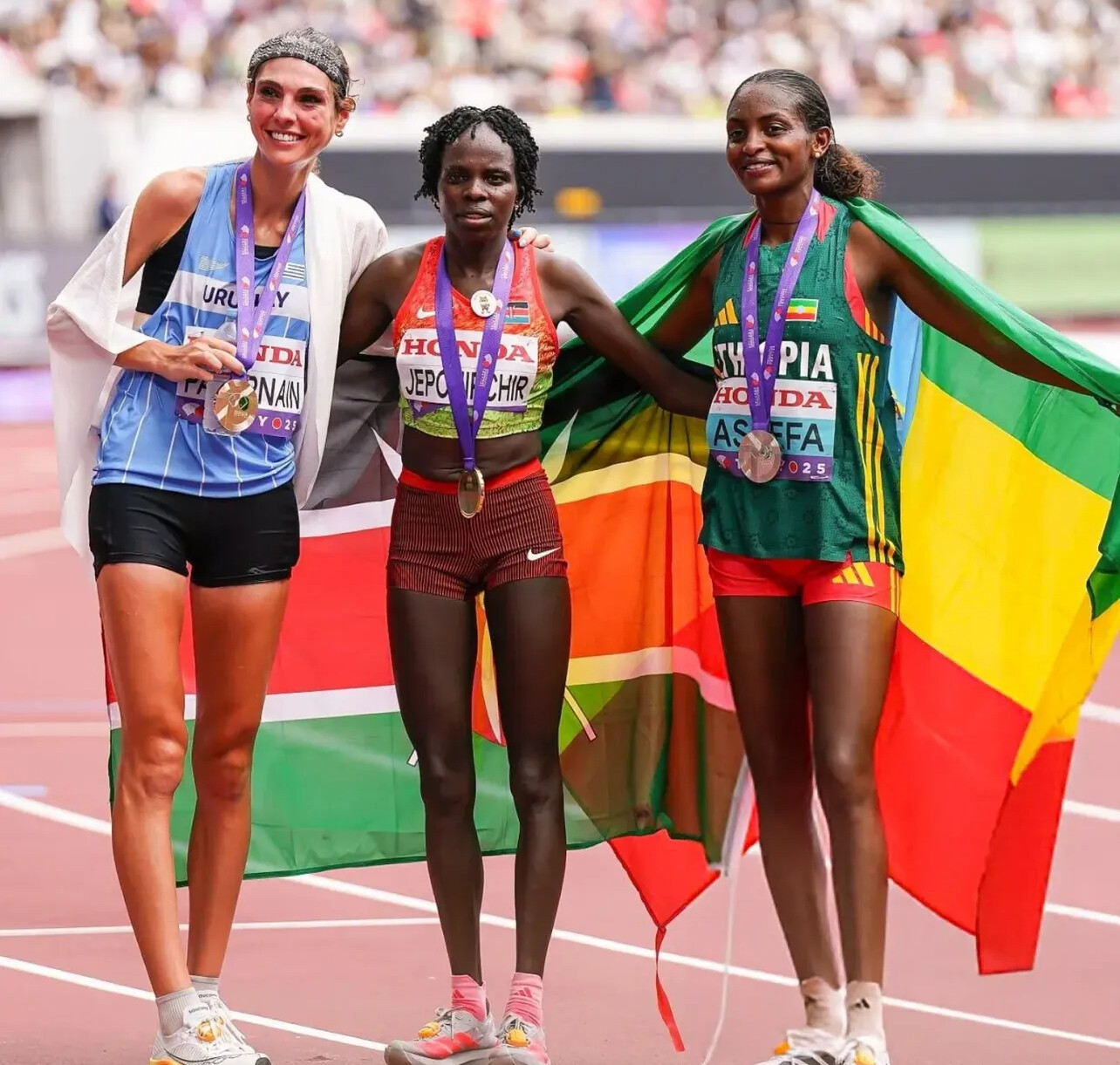
The strategy worked: Jepchirchir’s gold was supported by strong efforts from her compatriots, underlining Kenya’s strength in depth.
Global Spotlight on Kenya’s Legacy
Jepchirchir’s return has once again placed Kenya firmly at the center of the marathon conversation. Her triumph continues a proud tradition carried by icons like Catherine Ndereba, Tegla Loroupe, and Mary Keitany, while inspiring a new generation of runners.
“Kenya’s marathon culture is unmatched,” said one jubilant fan at JKIA. “Every victory like this strengthens our identity as the home of champions.”
Looking Ahead
While Nairobi celebrated, attention remains on Tokyo, where Kenyan athletes continue their medal hunt in the 1500m, 5000m, and steeplechase. Jepchirchir’s victory has set the tone, fueling hopes of more success.
A Champion Beyond the Finish Line
For Jepchirchir, the gold is more than just another medal. Having battled injuries and personal setbacks, her resurgence on the world’s biggest stage cements her as one of Kenya’s all-time greats.
From her beginnings in Kapsabet to victories in New York, the Olympics, and now Tokyo, Jepchirchir’s journey is one of resilience, faith, and belief. Her story continues to inspire athletes and fans worldwide — and her return home is a celebration not just of a single victory, but of a legacy still being written.
by Robert Kibet
Login to leave a comment
Kenyans take action against gender-based violence
In the wake of the murders of Agnes Tirop and Rebecca Cheptegei by their intimate partners, Athletics Kenya launched a movement on Monday to fight back against gender-based violence (GBV). A new hotline was unveiled for athletes to confidentially report cases of GBV, while an engagement campaign moves across Kenya to encourage athletes to speak up and to raise awareness for financial exploitation.
Tirop, World Championships 10,000 bronze medalist, was murdered by her husband in 2021, giving rise to the creation of Tirop’s Angels, an organization fighting GBV. High-profile female athletes, however, continued to fall victim to men; in September 2024, Cheptegei, who ran the Paris 2024 marathon, died after reportedly being set on fire by her ex-partner.
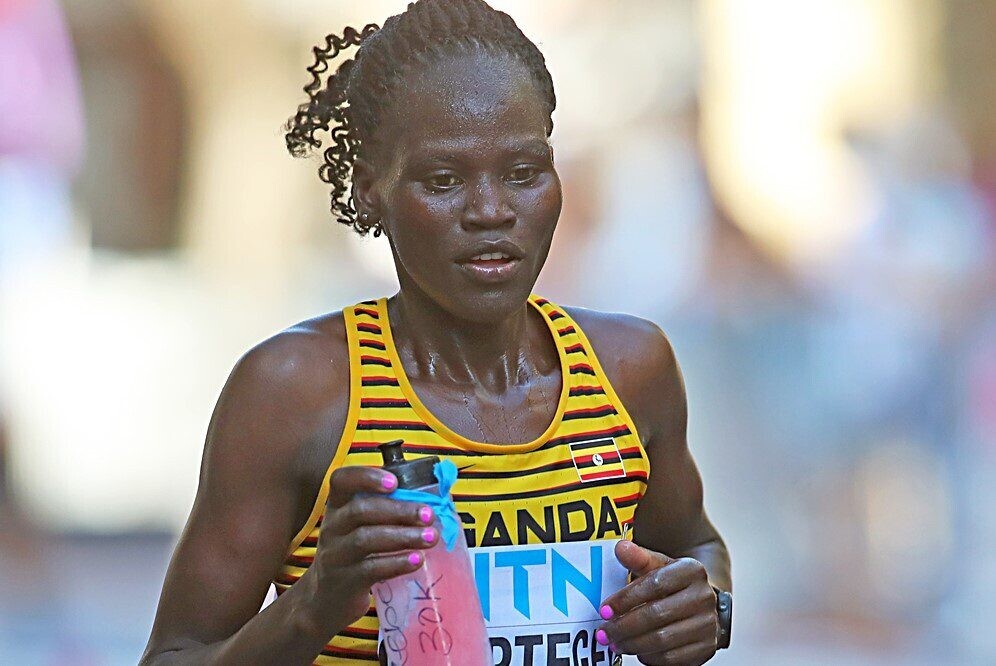
Working in conjunction with the National Government Affirmative Action Fund (NGAAF), Athletics Kenya addresses how lack of communication has been a significant obstacle in the fight against GBV. The hotline will allow athletes to call for help when in danger of GBV, while a chatbot will enable them send an SOS.
“We will fight it the same way we are doing with doping.”
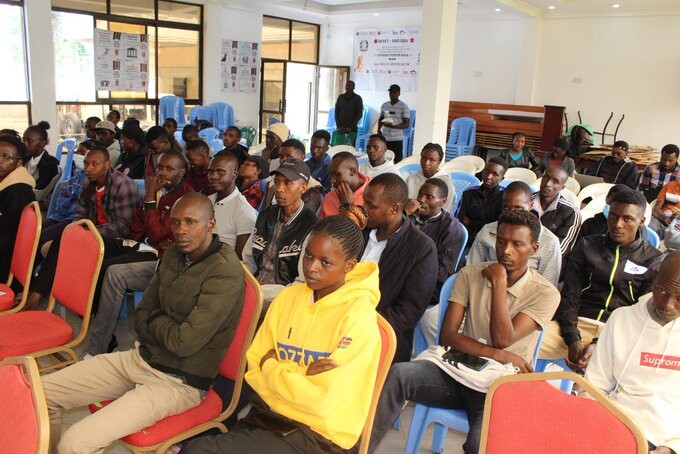
“GBV is totally unacceptable in our society as well as in athletics,” Athletic Kenya’s Chief Administrative Officer Susan Kamau said. “As Athletics Kenya, we are totally committed to eradicating GBV and we will fight it the same way we are doing with doping.” In 2023, the Kenyan government committed to rebuilding their anti-doping program and increased the frequency of random drug testing. Athletics Kenya hopes that a safe and confidential channel for reporting GBV incidents will encourage women and girls to speak up.
The awareness campaign, already in motion, has been moving across the country all week, hosting forums at athletics camps. The program allows runners to share their stories and suggestions to stop GBV, and features female leaders as speakers to educate athletes.
Raising awareness of financial exploitation, as well as GBV
High-profile athletes, including two-time 800m world champion and 2007 Olympic silver medallist, Janeth Jepkosgei, have also highlighted the connection between financial exploitation of athletes and GBV. “Be wary of predators who pretend to be coaches and get into a relationship with young athletes who are the same age as their daughters,” Jepkosgei said, speaking at Thursday’s forum in Kapsabet, Kenya.
Speaking at an earlier event, Lucy Kabuu, 2006 Commonwealth Games champion and two-time Olympian, emphasized the same message. Recently, the athlete has been defending herself in court against her ex-husband and coach, who is trying to claim her earnings. “When you start running and making money, be careful not to fall into the trap of unscrupulous coaches and managers,” Kabuu said. “You should buy properties in your name and not in any other person’s name. Get a financial adviser to help you invest wisely. Learn from me and what I am going through; do not wait to learn from another person.”
1997 World 10,000m champion Sally Barsosio echoed Kabul’s advice. Other successful runners that are actively raising awareness for GBV include seven-time World Marathon Major champion Mary Keitany, six-time World Marathon Major champion, two-time world champion and two-time Olympic silver medallist Catherine Ndereba, 2013 world champion, Diamond League champion and Olympic medallist Milcah Chemos and 2021 TCS New York City Marathon silver medallist, Olympian and founder of Tirop’s Angels, Viola Cheptoo.
by Cameron Ormond
Login to leave a comment
MARATHON GROUNDBREAKERS
Since Australia’s Derek Clayton ran history’s first sub—2:10 marathon in Fukuoka, Japan, on 3 December 1967, there have been a total of 4538 sub—2:10 marathons (as of 30 October 2024), 4537 by men, one by a woman.
As with any new ground-breaking performance, Ruth Chepngetich’s 2:09:56 in Chicago on 13 October has forced us to reassess all our past assumptions, or, like many, to doubt the validity of the performance itself. But no matter how we got here, to whatever you want to ascribe it, this is where we are now, 2:09:56 by a woman.
In this new reality, until proven otherwise, Ruth Chepngetich is the new Paula Radcliffe, just as Paula was the new Grete Waitz, one ground-breaker to the next, 1978 to 2003 to 2024.
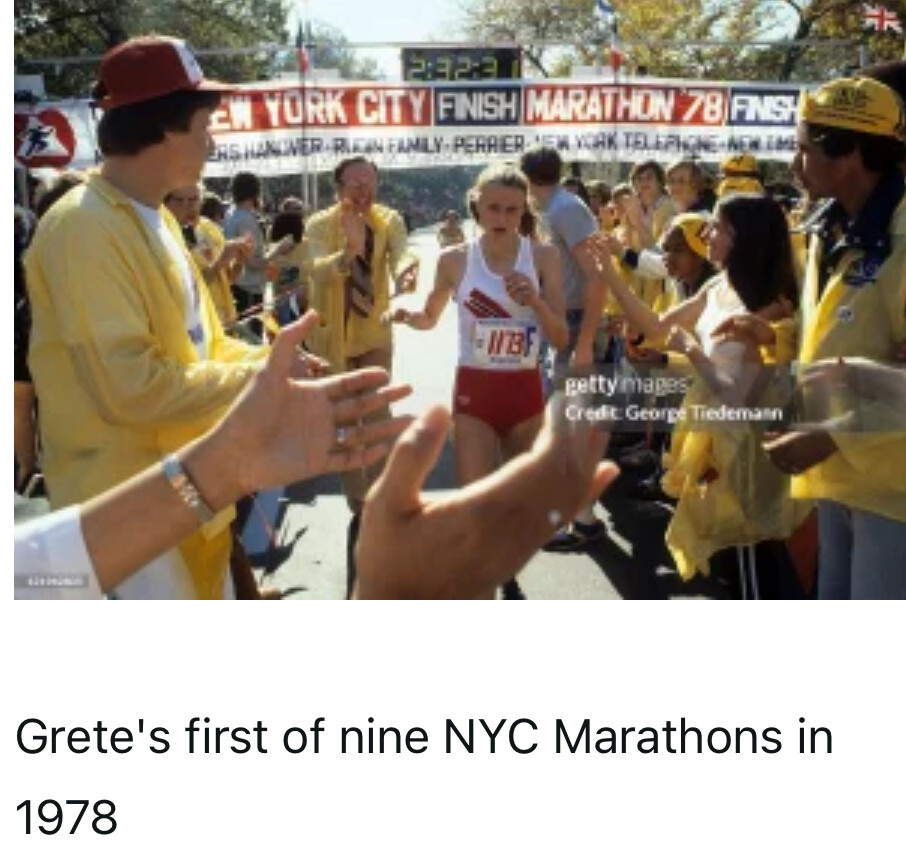
There have been many talented women champions through the years besides those three, including all the pioneers who had to overcome centuries of gender bias that restricted women from even showing their stuff.
But in terms of pure ground-breaking, the 1978 New York City Marathon drew a bright line between what once was and what would be.
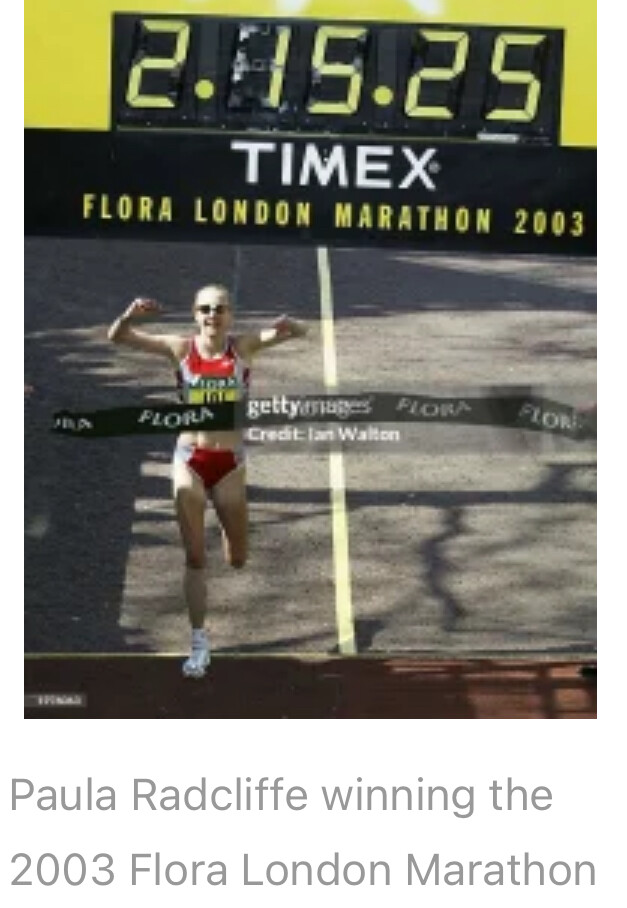
On 22 October 1978, Norway’s track and cross-country star Grete Waitz participated in the marathon for the first time, almost on a whim, as the trip was more of a honeymoon for her and husband Jack after the long track season.
The 2:32:30 world record Grete ran that day was totally unexpected by both the public and Grete herself. She wore bib #1173, wasn’t included on the list of elite women, and came with no specific marathon preparation (not a single run over 13 miles). In fact, she was so upset with husband, Jack, for suggesting she come run the marathon that she threw her shoes at him in the hotel room following her victory.
Still, like almost all debuting marathoners, after a short period of recovery and reflection, Grete concluded she could probably improve next time.
Thus, in New York 1979, following a more careful preparation, Grete ripped nearly five full minutes off her 1978 mark to record history’s first sub—2:30 by a woman at 2:27:33. Her margin of victory over England’s Gillian Adams was 11 minutes (2:38:33). The combination of the mild-mannered former geography teacher from Oslo and the raucous New York City crowds proved transformative, elevating women’s running to heights previously unimagined.
Though Japan’s Naoko Takahashi broke the 2:20 barrier for women in Berlin 2001, after Norway’s Ingrid Kristiansen (2:21:15, London ‘85), America’s Joan Benoit Samuelson (2:21:21, Chicago’85), and Kenyan Tegla Loroupe (2:20:43, Berlin ‘99) all challenged the barrier in the 1980s and ‘90s, it was England’s Paula Radcliffe who established new headlands in the marathon in London 2003 with her 2:15:25.
Nearly two minutes faster than her own 2:17:18 record from Chicago the year before, her 2:15 arced away from Catherine Ndereba’s 2:18:47 from Chicago 2001, completed just one week after Takahashi’s first sub-2:20 in Berlin.
The quality of Paula’s 2:15 can be seen in the 16 years and an entire shoe technology revolution that developed before Kenya’s Brigid Kosgei did Paula one better in Chicago 2019 at 2:14:04. That performance plowed new ground again. And now we have Ruth Chepngetich in Chicago 2024 with history’s first sub-2:10, just a year after Ethiopia’s Tigst Assefa’s first sub—2:12 in Berlin `23 (2:11:53).
Twice before, Chepngetich had come to Chicago with world record intentions. In 2022, she won the race in 2:14:18, just 14 seconds off Kosgei’s record. In 2023 she finished second in 2:15:37. On both occasions she flew through halfway under 66 minutes, only to falter in the second half. Perhaps she was a close reader of Malcolm X.
“There is no better teacher than adversity. Every defeat, every heartbreak, every loss, contains its own seed, its own lesson on how to improve your performance the next time.” – Malcolm x
In simple terms, making innovative strides in athletics requires time, experimentation, and reviewing, similar to how new scientific theories are examined before full acceptance. But women just haven’t been at the marathon game long enough to produce a large enough sample size to define their outer limits with any accuracy. They are barely two generations in since 1978.
Men have been competing for a much longer time with a much larger sample size.
Though Eliud Kipchoge surpassed the two-hour barrier in Vienna in 2019, that was accomplished as an exhibition, not a sanctioned race. In that sense, we are still awaiting the next barrier breaker on the men’s side in the Marathon.
Looking back, England’s Jim Peters stands as the first modern barrier breaker with his 2:18:40 win at the 1953 Polytechnic Marathon between Windsor and Chiswick in West London, England, history’s first sub—2:20.
Next was Ethiopia’s Abebe Bikila, the legendary double Olympic victor in Rome 1960 and Tokyo 1964. His 2:15:17 in Rome still stands as the barefoot marathon world record.
Next came Australia’s Derek Clayton, the first man under both 2:10 and 2:09. His 2:08:34 from Antwerp 1969 lasted for 12 years, holding off challenges throughout the entire Running Boom era headed by Americans Frank Shorter and Bill Rodgers.
Though never world record holders, the two Americans dominated the 1970s boom era, Shorter through the first half, Rodgers the second.
The Eighties were the last decade of international marathon champions: American (Al Salazar, Greg Meyer); European (Steve Jones, Carlos Lopes); Japanese (Toshihiko Seko and the Soh brothers); and Australian (Rob de Castella). Kenya’s Joe Nzau won Chicago in 1983 in a thrilling duel with England’s Hugh Jones when Chi-town was still developing its reputation as a world class event.
Ibrahim Hussein set new records in Honolulu and kick-started the Kenyan marathon revolution
The full East African deluge didn’t begin until 1987 and ‘88 when Kenya’s Ibrahim Hussein (already a two-time and soon to be three-time Honolulu Marathon champion) became Africa’s first New York City and Boston Marathon winner and Ethiopia’s Belayneh Dinsamo set the world record, 2:06:50, in Rotterdam 1988 that lasted over a decade.
The list of marathon stars from other nations scaled back markedly in the 1990s. Mexico had its turn at the top via greats like Dionicio Cerón (1994-`96 London champion), and back-to-back New York Ciy winner German Silva (1994 & 1995).
Moroccan-born American Khalid Khannouchi twice ran a world marathon record, first in Chicago 1999 (2:05:42), then three years later in London 2002 (2:05:38). And who could forget the personable Brazilian, Marílson Gomes dos Santos, who won New York City twice in 2006 & 2008, or Meb in NYC `09 and Boston 2014??
But the United Nations pickings get rather meager after that as East African athletes have had a stranglehold on the sport of marathoning, most dominatingly by Kenya’s Eliud Kipchoge. His run of sustained excellence over 42.2 kilometers was, and is, unprecedented in its longevity, including double gold in Rio 2016 and London 2020. And his last world record of 2:01:09 in Berlin 2022.
Sadly, the current record holder, Kelvin Kiptum, died in a car accident in February 2024 after establishing the 2:00:35 world record in Chicago 2023.
With the 2024 TCS New York City Marathon scheduled this weekend, we don’t expect to see any record performances. Yet, all the above is why we follow the game, isn’t it, to witness the arc of improvement over time, while hoping to discover a new name to remember? It’s as valid a focus as any other in this life.
And despite its many flaws and corruptions, the sport of marathoning retains an innate dignity that many endeavors do not. People may have bruised, battered, and tarnished it in the name of glory and money. But it survives, nonetheless, as a simple reflection of the human drive to achieve more in the quest to discover our best.
Doesn’t always turn out that way, but I don’t think we are done with it quite yet. Onward!
by Toni Reavis
Login to leave a comment
WHAT THE NUMBERS SAY (ABOUT WOMEN’S MARATHOING)
I am a numbers’ guy. I’ve always been a numbers’ guy. I always want to see what the numbers tell me before I opine from an emotional standpoint.
Accordingly, I did a deep dive into the last five women to hold the marathon world record going back to Kenyan Catherine “The Great” Ndereba, in 2001. What I found was a changing world order.
Catherine Ndereba was the last of the old school road racers who then progressed to the marathon. Catherine came to compete on the U.S. road tour beginning in 1995, but really began winning convincingly in 1996 at age 24, winning four times in New York City; Spokane, Washington; Utica, NY; Flint, Michigan; and Philadelphia, Pa.
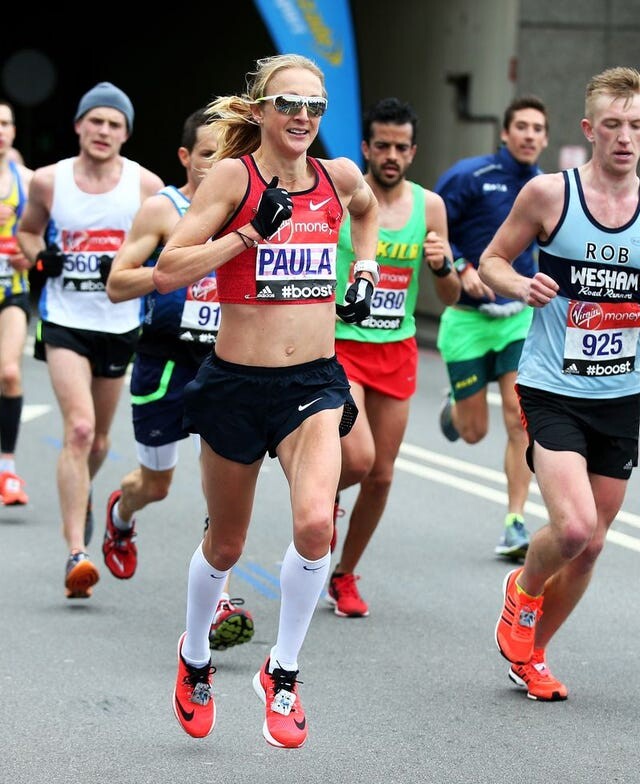
In 1999, she made her marathon debut in Boston, running to eighth place in 2:28:26. Later that fall, she finished second in New York City in 2:27:34. But she also had eight wins on the road circuit when you could still make money there and the marathon wasn’t yet as lucrative as it is today.
The following year, 2000, Catherine won her first Boston and Chicago Marathons, with another eight wins on the road circuit. She won Boston again in 2001 in 2:22:53, then set her world record in Chicago in the fall in her sixth career marathon, running 2:18:47, with another eight wins on the roads. Catherine was 29 when she ran her record and set her personal best by 2:46 seconds.
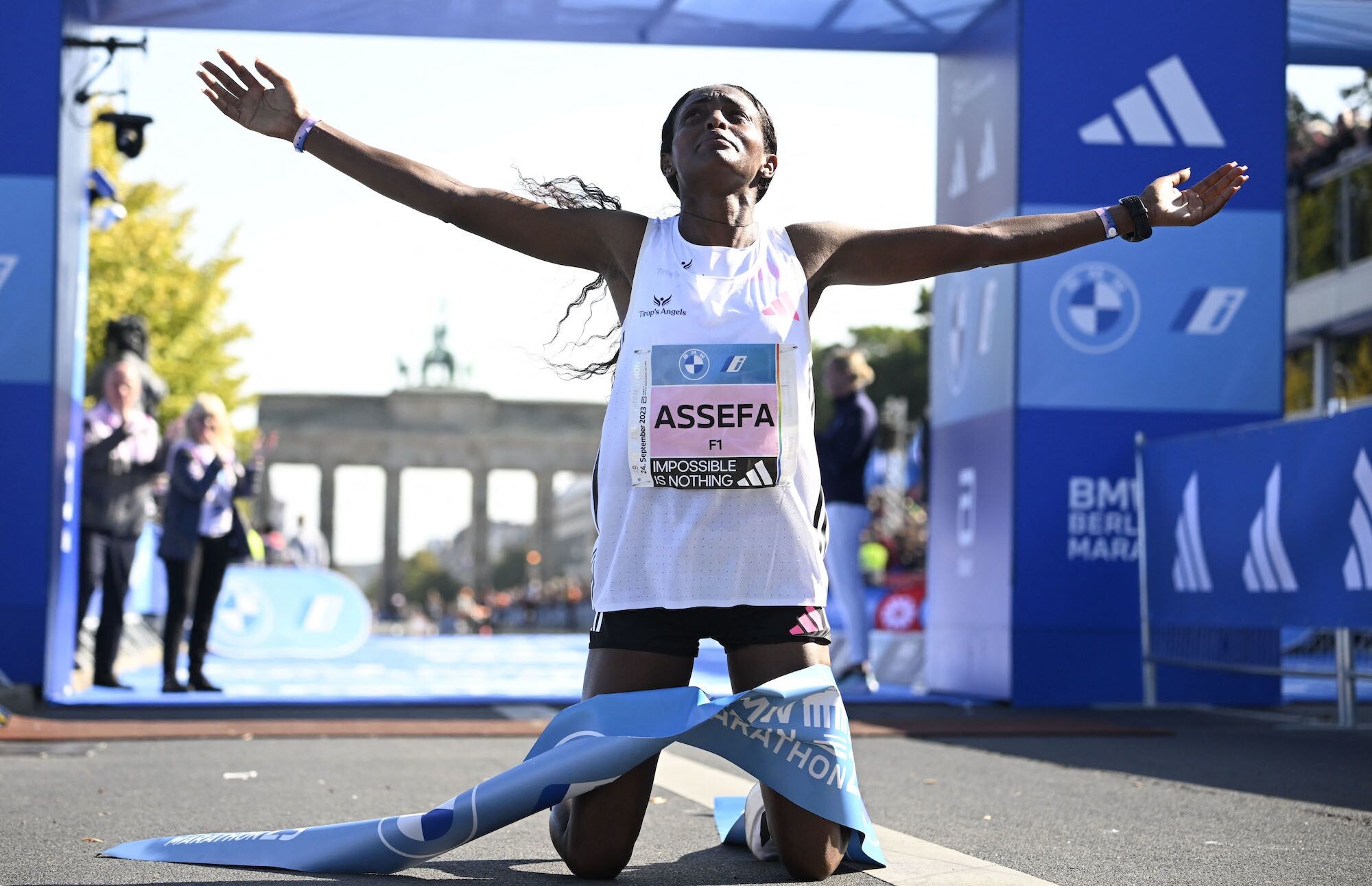
In all, she ran 23 marathons, finished 23, won 8.
Great Britain’s Paul Radcliffe broke Catherine‘s world record one year later in Chicago 2002 (2:17:18) then smashed her own record one year later in London (2:15:25), a record that would last 16 years, by far the longest standing women’s marathon world record in history. Before that, Paula had run her debut in the spring of 2002 in London, at age 28, winnng in 2:18:56, a debut record.
In all, Paula started 13 marathons, finished 12, won 8. She, like Catherine, was age 29 when she set her final record at 2:15:25.
But Paula had a long, distinguished career in cross country and track going all the way back to 1992 when won the IAAF World Cross Country U20 championship in snowy Boston before finishing fourth in the World Junior Championships in the 3000m, a circumstance that would repeat itself over the years until she moved up in distance.
Paula ran fifth at the 1996 Olympic 5000m final in Atlanta. Then fourth in the 1997 World Championships 5000 in Athens; second in the WC 10,000m in Seville; and fourth again in the 2000 Olympic 10,000 in Sydney. She just couldn’t finish the last 200-300m with the East Africans like Derartu Tulu and Gete Wami to nab gold.
She entered her first marathon in London 2002 after showing her ability at the half marathon, winning at the Great North Run and the World Half Marathon Championships in Vera Cruz in 2000, and again in Bristol in 2001 – though she still ran on the track at 3k, 5k and 10k. From there, it was clear sailing, as the world came to expect Paula’s 2:15:25 to last for a long, long time.
It wasn’t until Brigid Kosgei came along in Chicago 2019, running 2:14:04, that Paula’s mighty record fell. But that was a bit of a stunner, as people didn’t see it coming. That gave even more gravity to the super-shoe era, because Brigid was 25 years old running the ninth of her 17 career marathons when she set her record. It was a personal best by 4:16, very similar to what we saw with Ruth Chepngetich last Sunday in Chicago. Both were deep into their marathon careers before producing their other worldly record performances.
Between Brigid and Ruth came Ethiopia’s Tigst Assefa. She ran her world record of 2:11:53 at age 26 in Berlin in the third of only five career marathons. And that WR was a personal best by 3:44 at age 26.
And now, of course, we have Ruth Chepngetich, whose 2:09:56 in Chicago last Sunday has had heads spinning faster than Linda Blair in the Exorcist.
Ruth has run 15 marathons, finished 13, won 9, while running her world record in her 15th marathon, seven years into her career, setting a PB by 4:22. That last stat is the one people have trouble getting their heads around. You don’t improve that much so late in your career; they say.
But Brigid Kosgei ran her world record in the ninth of 17 career marathons with a personal best by 4:16. So what Ruth did was not unprecedented, though taken from a tiny sample.
The ages when they produced their world records:
Catherine, age 29; Paula, age 28 and 29;Brigid, age 25; Tigst, age 26; Ruth, age 30.
The world is constantly spinning, changing. Catherine Ndereba and Paula Radcliffe came from an old world, not just pre-super shoes, but pre-only focusing on marathons and half marathons.
And with the super shoes and super nutrition and super coaching and super God knows what else, there has been a great stir in the running community. Some refuse to even consider the possibility of these record times. Others say “wait and see if any positive testing follows down the line”, as we have seen many times before. And very few say, “everything‘s on the up and up. There’s nothing here to see other than a great performance.”
That doesn’t leave the sport in a very good place. But guess what? We are kidding ourselves if we think 2:09:56 is going to last very long. Look at Chicago’s women’s splits: 15:00 at 5K = 2:06:46 pace; 45:32 at 15k = 2:08:16 pace; and 64:16 at halfway = 2:08:32 pace. You even out that effort just a little, and you’re looking at sub-2:09! It’s coming. You can count on it. Plus, once one-person shows what’s possible, it inspires many more to try.
Remember, we are still in the first two generations of world-class women’s distance running. We have no idea what their limits may be, notwithstanding all nefariousness that attends the sport these days.
And so the debate continues, even as the sport searches for leadership, which seems to be missing in action. It’s one hell of a Wild West show, isn’t it?
by Tony Reavis
Login to leave a comment
Marathon legend Catherine Ndereba finally explains why she retired unconventionally
Ndereba is widley regarded as one of the greatest female marathoners of all time, but she retired quite unceremoniously.
Marathon icon Catherine Ndereba has explained why she decided to retire without a lot of glamor back in 2012.
Known for her unparalleled achievements in the marathon world, Ndereba’s decision to step away from the sport without fanfare was driven by persistent health issues.
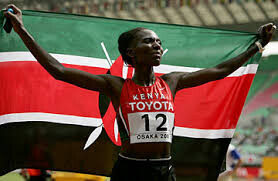
Between 2003 and 2008, Ndereba consistently finished in the top two in five successive global championship marathons.
She twice won the marathon at the World Championships in Athletics and secured silver medals at the Summer Olympic Games in 2004 and 2008, making her Kenya’s first female multi-medalist.
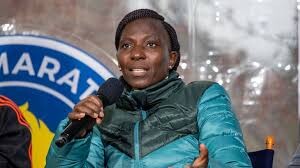
Her accolades also include four Boston Marathon victories and two Chicago Marathon wins. It was at the latter in 2001 that she broke the women’s marathon world record with a time of 2:18:47. In 2008, the Chicago Tribune’s Philip Hersh described her as the greatest women’s marathoner of all time.
Despite these incredible accomplishments, Ndereba chose to retire quietly in 2012. In an interview on the Safari Za Mabingwa show with comedian Obina on KTN News, Ndereba revealed the reasons behind her understated retirement.
“I stopped unceremoniously because I developed some problems. Just like with your car, as you continue driving it, you know it needs service. It may get in an accident or break something,” Ndereba explained.
A problematic ankle, which she had managed throughout her career, became overwhelming towards the end.
“For me, I developed an injury that could not be fixed there and then. It is something that needs a lot of attention. I needed surgery but decided against it. I wanted to heal naturally,” she shared.
Ndereba’s right ankle ligaments were gradually torn over time. “I went to the doctor, who assessed and did all the images, including the MRI that showed exactly what was wrong.”
Despite the possibility of prolonging her career through surgery, Ndereba opted against it. “I did not want to have it. All that time in the hospital? And yet, I could not make a bigger name for myself after what God gave me. I was totally content,” she stated.
Ndereba’s decision to retire without seeking further medical intervention reflects her contentment with her illustrious career. Her legacy as a marathon icon remains intact, celebrated for her remarkable achievements and her graceful exit from the sport.
by Mark Kinyanjui
Login to leave a comment
When Will Eliud Kipchoge Slow Down?
What we can learn from the world’s greatest distance runner of all-time while he’s still in his prime
Eliud Kipchoge has expanded the universe of what’s humanly possible in the marathon, and he will forever remain a legend in the sport of long-distance running.
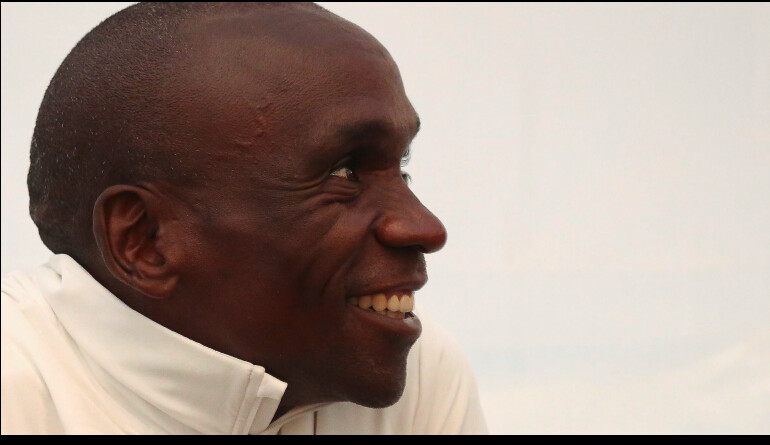
Not only for himself, but especially for those who have come after him. That includes everyone, both elite and recreational runners, who are preparing a marathon this fall or some distant point in the future. His current 2:01:09 world record and his barrier-breaking 1:59:40 time-trial effort in 2019 are legendary feats, both for the current generation of runners and for all time.
The 38-year-old Kenyan marathoner is a once-in-a-lifetime athlete, but time waits for no one, and especially not a long-distance runner. Like all elite athletes, his time at the top is limited, but fortunately, there is still time to immerse in the inspirational examples he’s providing.
Kipchoge recently announced he’ll return to the Berlin Marathon on September 24, where, last year, he won the race for the fourth time and lowered the world record for the second time. It is most likely what will be the beginning of a grand denouement as he goes for another gold medal at the 2024 Olympics next summer in Paris.
Given that he won his first global medal in the City of Light—when, at the age of 18, he outran Moroccan legend Hicham El Guerrouj and Ethiopian legend-in-the-making Kenenisa Bekele to win the 5,000-meter run at the 2003 world championships—it would certainly be one of the greatest stories ever told if he could win the Olympic marathon there next year when he’s nearly 40.
Certainly he’ll run a few more races after the Olympics—and maybe through the 2028 Olympics in Los Angeles—but, realistically, it is the start of a farewell tour for a runner who will never be forgotten.
Don’t get me wrong: I’m not at all writing Kipchoge off. In fact, I am excited to see him run in Berlin and can’t wait to watch next year’s Olympic marathon unfold. But just as we’ve watched Michael Jordan, Tiger Woods, Serena Williams, Shalane Flanagan, Usain Bolt, Allyson Felix, and other elite athletes succumb to the sunsetting of their peak performance level, so too will Kipchoge eventually suffer the same fate.
What I’m saying here is that we still have time to watch and appreciate Kipchoge eloquently working his magic and continue to be inspired in our own running and other pursuits in life. Remember how we marveled at Michael Jordan’s greatest in “The Last Dance” more than 20 years after his heyday? This is the start of the last dance for Kipchoge, who, like Jordan, is much, much more than a generational talent; he’s an all-time great whose legacy will transcend time.
Running has seen many extraordinary stars in the past 50 years who have become iconic figures— Frank Shorter, Joan Benoit Samuelson, Ted Corbitt, Carl Lewis, Steve Jones, Paul Tergat, Catherine Ndereba, Paula Radcliffe, Haile Gebrselassie, Kenenisa Bekele, Mary Keitany, Brigid Kosgei, and Kilian Jornet, to name a few—but none have come close to the body of work and global influence of Kipchoge.
Not only is Kipchoge one of the first African athletes to become a household name and truly command a global audience, but he’s done more than other running champions because of he’s been able to take advantage of this advanced age of digital media to deliberately push positive messages and inspiring content to anyone who is willing to receive it.
Kipchoge has won two Olympic gold medals, set two world records, and won 17 of the 19 marathons he entered, but he’s so much less about the stats and bling and more sharing—to runners and non-runners alike—that “no human is limited” and also that, despite our differences, we’re all human beings faced with a lot of the same challenges in life and, ultimately, hard work and kindness are what put us on the path to success.
How can an average runner who works a nine-to-five job and juggles dozens of other things in daily life be inspired by an elite aerobic machine like Kipchoge?
He is supremely talented, no doubt, but many elite runners have a similar aerobic capacity to allow them to compete on the world stage. What Kipchoge uniquely possesses—and why he’s become the greatest of all-time—is the awareness and ability to be relentless in his pursuit of excellence, and the presence and good will of how beneficial it is to share it.
If you haven’t been following Kipchoge or heard him speak at press conferences or sponsor events, he’s full of genuine wisdom and encouragement that can inspire you in your own running or challenging situation in life. His words come across much more powerfully than most other elite athletes or run-of-the-mill social media influencers, not only because he’s achieved at a higher level than anyone ever has, but because of his genuine interest in sharing the notion that it’s the simplest values—discipline, hard work, consistency, and selflessness—that make the difference in any endeavor.
This is not a suggestion to idolize Kipchoge, but instead to apply his wisdom and determination into the things that challenge you.
“If you want to break through, your mind should be able to control your body. Your mind should be a part of your fitness.”
“Only the disciplined ones in life are free. If you are undisciplined, you are a slave to your moods and your passions.”
“If you believe in something and put it in your mind and heart, it can be realized.”
“The best time to plant a tree was 25 years ago. The second-best time to plant a tree is today.”
Those are among the many simple messages that Kipchoge has lived by, but he also openly professess to giving himself grace to take time for mental and physical rest and recovery. It’s a simple recipe to follow, if you’re chasing your first or fastest marathon, or any tall task in life.
Kipchoge seems to defy age, but his sixth-place finish in the Boston Marathon in April proved he’s human. As much as it was painful to watch him falter, it was oddly refreshing and relatable to see him be something less than exceptional, and especially now that he’s tuning up for Berlin. He has nothing left to prove—to himself, to runners, to the world—but he’s bound to keep doing so just by following the same simple, undaunted regimen he always has.
There will be other young runners who will rise and run faster than Kipchoge and probably very soon. Fellow Kenyan Kelvin Kiptum—who has run 2:01:53 (Valencia) and 2:01:25 (London) in his first two marathons since December—seems to be next in line for Kipchoge’s throne of the world’s greatest runner. But even after that happens, Kipchoge’s name will go down in history alongside the likes of Paavo Nurmi, Abebe Bikila, Emil Zátopek, Grete Waitz, Shorter and Samuelson because of how he changed running and how he gave us a lens to view running without limits.
Berlin is definitely not the end of Kipchoge’s amazing career as the world’s greatest long-distance runner. I fully expect him to win again in an unfathomable time. But the sunset is imminent and, no matter if you are or have ever been an aspiring elite athlete at any level, a committed recreational runner, or just an occasional jogger trying to reap the fruits of consistent exercise, his example is still very tangible and something to behold.
by Outside Online
Login to leave a comment
Two world records and a house for Kenya's Kipyegon
Kenya’s Faith Kipyegon, who recently set world records in the 1500m and 5000m, has received a house and 5 million KES ($35,000) following her historic feats in Florence and Paris this month.
Kipyegon met with Kenyan President William Ruto on her return to her home country, with Ruto pledging a similar monetary reward for Kenya’s future world record-breakers.
The awarding of a house to Kipyegon follows the announcement on 30 May of a new scheme in Kenya that is designed to help athletes to own property and invest their earnings. It is particularly important for female athletes, who will now be able to buy a house under their sole name.
Kipyegon – the first recipient of the scheme – ran 3:49.11 to break the world 1500m record in Florence on 2 June and a week later the 29-year-old clocked 14:05.20 in Paris to add the world 5000m record to her ever-expanding CV.
She met with Ruto at State House in Nairobi and was joined at the ceremony by her husband Timothy Kitum, the 2012 Olympic 800m bronze medallist, and their daughter Alyn.
The new scheme is the result of a partnership between Athletics Kenya and Kenyan banking institution Housing Finance Group that offers athletes affordable home ownership, financing at incentivised Kenya Mortgage Refinancing rates and links to strategic affordable housing developers.
“It is a no-brainer that having a decent shelter is one of the basic needs for human survival. Yet, for all its importance, decent housing is one of the biggest challenges that millions of Kenyans face in this country,” said Athletics Kenya President Jackson Tuwei during the launch of the partnership in Nairobi, where Hon. Ababu Namwamba, the Cabinet Secretary for Youth Affairs, Sports and the Arts, was chief guest.
“Among those affected are Kenyan sportsmen and women who struggle with balancing putting a decent roof over their heads and pursuing their ambitions on the track and field.”
Beatrice Chebet, Beatrice Chepkoech, Dan Kiviasi, Mary Moraa, Wiseman Were, Wilfred Bungei, Milcah Chemos, Catherine Ndereba, John Ngugi and William Tanui were among the current and former athletes who were present at the launch ceremony.
Login to leave a comment
Six Best Marathon Runners of all time
The marathon is one of the toughest running events. This event is set at 26.2 miles or 42.195 kilometers, as presented by the International Association of Athletic Federations (IAAF) in 1921.
It's a significantly long-distance race that most people could not complete. It takes lots of training. One of the most famous marathon is Boston coming up Monday April 17. And one of our top six will be running, Eliud Kipchoge. So here are our six marathoners as the best of all time. What are your top six?
Eliud Kipchoge
Eliud Kipchoge easily tops this list as being the GOAT (greatest of all time!) in marathon history. He's a Kenyan runner that participated in marathons and used to specialize in the 5000-meter distance. Kipchoge has already made history and set a world record last September 2018 in Berlin after he completed the distance set for the Olympic men's race with 2:01:39.
No one else was able to defeat the record for several years until Eliud Kipchoge himself broke his own record at his fifth Berlin marathon last year, September 2022 with 2:1:9. It's a 30-second gap from his initial world record, which is a significant improvement already as a runner.
Not only that but he's also been a three-time London and Berlin champion since 2015! At 38 years old, he's already achieved so much, and he's not stopping just yet. Kipchoge also informed everyone that he'll be aiming for the Paris 2024 games, so you should also wait for that and check the updates on FanDuel Sports online.
Haile Gebrselassie
Next on the list is truly one of the marathon legends who dominated the industry when he was still active. Haile Gebreselassie is an Ethiopian long-distance runner who retired last 2015 after over 20 years of long-distance running. He's been active from the late 90s to the early 2000s, and a few of his astonishing achievements include consecutively winning the Berlin Marathon four times and the Dubai Marathon three times.
He also has four World Championship titles (1993 Stuttgart, 1995 Gothenburg, 1997 Athens, and 1999 Seville) and two Olympic golds (1996 Atlanta and 2000 Sydney) in a 10,000-meter distance run. Although he's no longer in the running scene, his legendary achievements will live long.
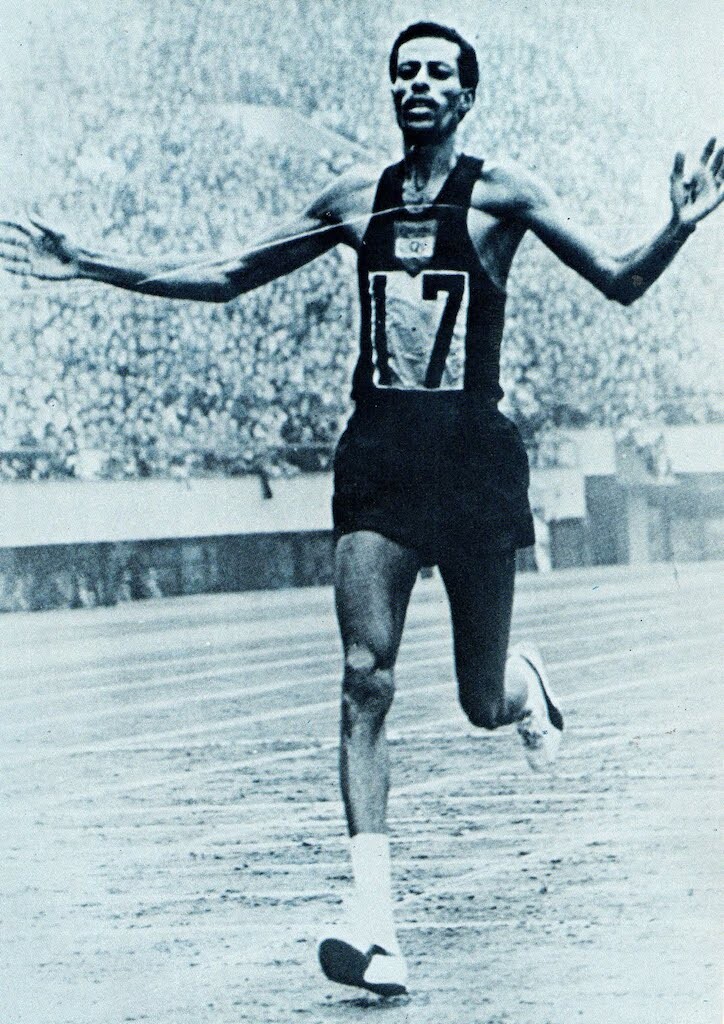
Abebe Bikila
If you're a huge fan of marathon events, you should already know about Abebe Bikila by now. He's a pioneer marathon runner that made significant feats in the history of the marathon. To start, he's the only athlete who ran barefoot during the Rome 1960 Olympics. He faced the cobblestones head-on, won a gold, and even set a world record. Bikila became the first Black African that ever topped at the Games in a 42.195km race.
Furthermore, his amazing barefoot run made it to the Guinness World Record as the fastest marathon run in bare feet at the 1960 Olympic Games with 2:15:16.2. Additionally, Abebe Bikila was also the first runner to win two Olympic marathon events after he grabbed another gold at Tokyo 1964
Mo Farah
Mo Farah is a British marathon runner who's only the second athlete to win 10,000-meter and 5,000-meter titles at successive Olympic Games. Throughout his athletic career, he accumulated 19 gold with nine silvers and two bronzes.
Moreover, he initially planned to retire but then changed his mind and participated in the Tokyo Olympics in 2020 and was even tipped by the excellent Eliud Kipchoge. He's still active to this day, but Farah shared with everyone that 2023 will be his final year after confirming that he will be participating in the London Marathon this April and giving it "one more shot."
Catherine Ndereba
Catherine, the Great Ndereba, is the first woman on this list, and she deserved it. She's one of the marathon runners that other athletes should recognize. The Olympics even regarded her achievement as one of the great.
In 2005, she was even awarded by the former Kenya president Mwai Kibaki with the Order of the Golden Aware due to her excellent accomplishments. Not only that, but she was also awarded 2004 and 2005 Kenyan Sportswoman of the Year.
Although she couldn't bring home gold from participating in the Olympic Games, she got to win silver awards for the 2004 Athen Games and 2008 Beijing Games. Additionally, she also has eight gold wins in World Championships and World Marathon Majors combined.
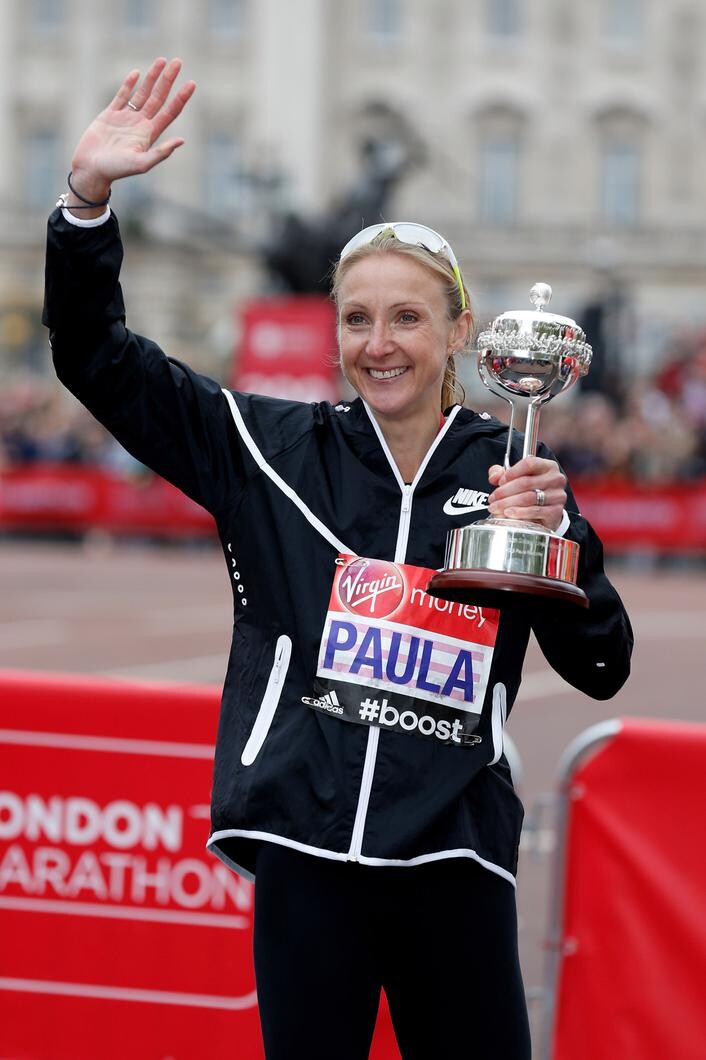
Paula Radcliffe
Paula Radcliffe is also one of the marathon runners that overcame her health issues as a child and became a successful athlete as an adult. Growing up, she struggled with anemia and asthma, but these were just a few bumps in the road as she continued to work hard and brought home several gold awards.
This British long-distance runner was the women's world record holder for over 16 years (2003 to 2019) for being the fastest female marathon runner with 2:15:25 until Brigid Kosgei broke it in 2020. Aside from that, she's also able to win New York City and London marathons three times and won 15 gold awards in total.
Final Thoughts
Marathon is an exciting sport, and no regular person can participate. It takes great understanding that a marathon is more than just running. Being as powerful as the runners mentioned above takes months of training and endurance. Although there are still other remarkable marathon runners, these six, in particular, made significant achievements in this field.
Login to leave a comment
Kenya's Maurine Chepkemoi hoping to become an overseas visitor to win Osaka marathon
Kenya's Maurine Chepkemoi will be seeking to become new name to be added to the Osaka Women’s Marathon list of winners on Sunday as none of the past champions will be in attendance at the World Athletics Platinum Label road race.
Chepkemoi set lifetime best clocking 2:20:18 during the 2021 Amsterdam marathon ahead of Ethiopian Haven Hailu who will he highly motivated for revenge.
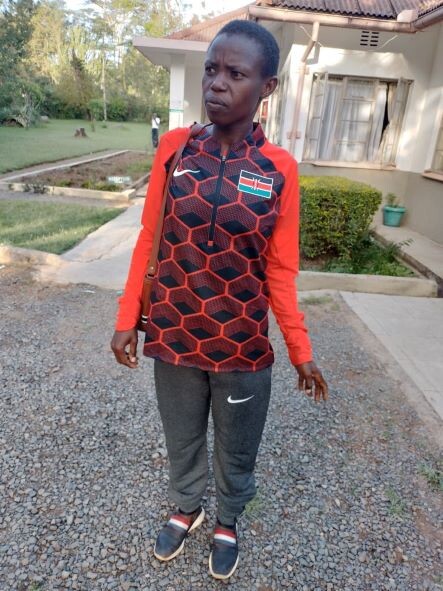
Both women went on to contest two marathons in 2022. Chepkemoi won in Enschede in 2:21:10 and then ran 2:25:12 in Berlin, but finished outside the top 10. Hailu, meanwhile, won in Rotterdam in 2:22:01 but then failed to finish in Chicago.
Japanese women have dominated the race in recent years, winning six of the past seven editions. But the presence of Chepkemoi, Hailu and Meseret Gola means there’s a high probability of an overseas visitor winning this year’s race
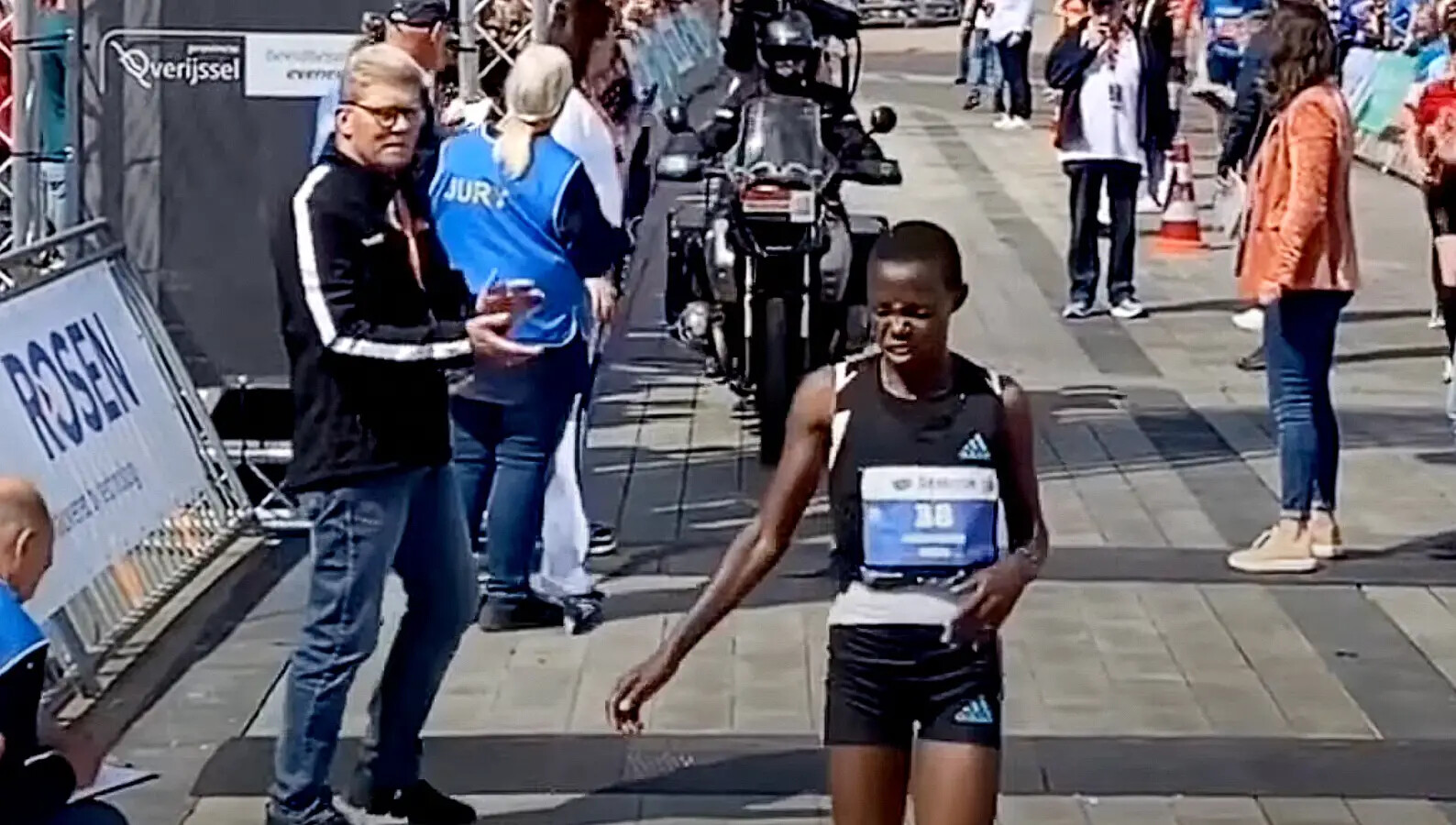
If Chepkemoi wins, she will be the first Kenyan winner of this race since Catherine Ndereba claimed victory back in 2006.
Last year, Mizuki Matsuda broke the race record at the Osaka Women’s Marathon improving her PB to 2:20:52 to win the World Athletics Elite Label event.
Her time defeated the 2:21:11 event record which had been set by Mao Ichiyama in 2021 and moved her to fifth on the Japanese all-time list. It was also the second-fastest time by a Japanese athlete in Japan, behind Ichiyama’s 2:20:29 set in Nagoya in 2020.
by Maxwell Wasike
Login to leave a comment
Osaka Marathon
Let’s run for fun in the shadow of Osaka Castle, the symbol of the city!This is a fun running event, which welcomes international runners from all corners of the global alongside families, friends and Japanese runners; all running together through the colored leaves of Osaka Castle Park on a crisp autumn morning. The fun and pleasure of running is universal! ...
more...Osaka Women’s Marathon set to crown new champion
A new name will be added to the Osaka Women’s Marathon list of winners on Sunday (29) as none of the past champions will be in attendance at the World Athletics Platinum Label road race.
Japanese women have dominated the race in recent years, winning six of the past seven editions. But the presence of Maurine Chepkemoi, Haven Hailu and Meseret Gola means there’s a high probability of an overseas visitor winning this year’s race.
Chepkemoi and Hailu have raced before, at the 2021 Amsterdam Marathon, where both women set their lifetime bests. Kenya’s Chepkemoi finished just one second ahead of Hailu on that occasion, 2:20:18 to 2:20:19, so the Ethiopian will he highly motivated for revenge.
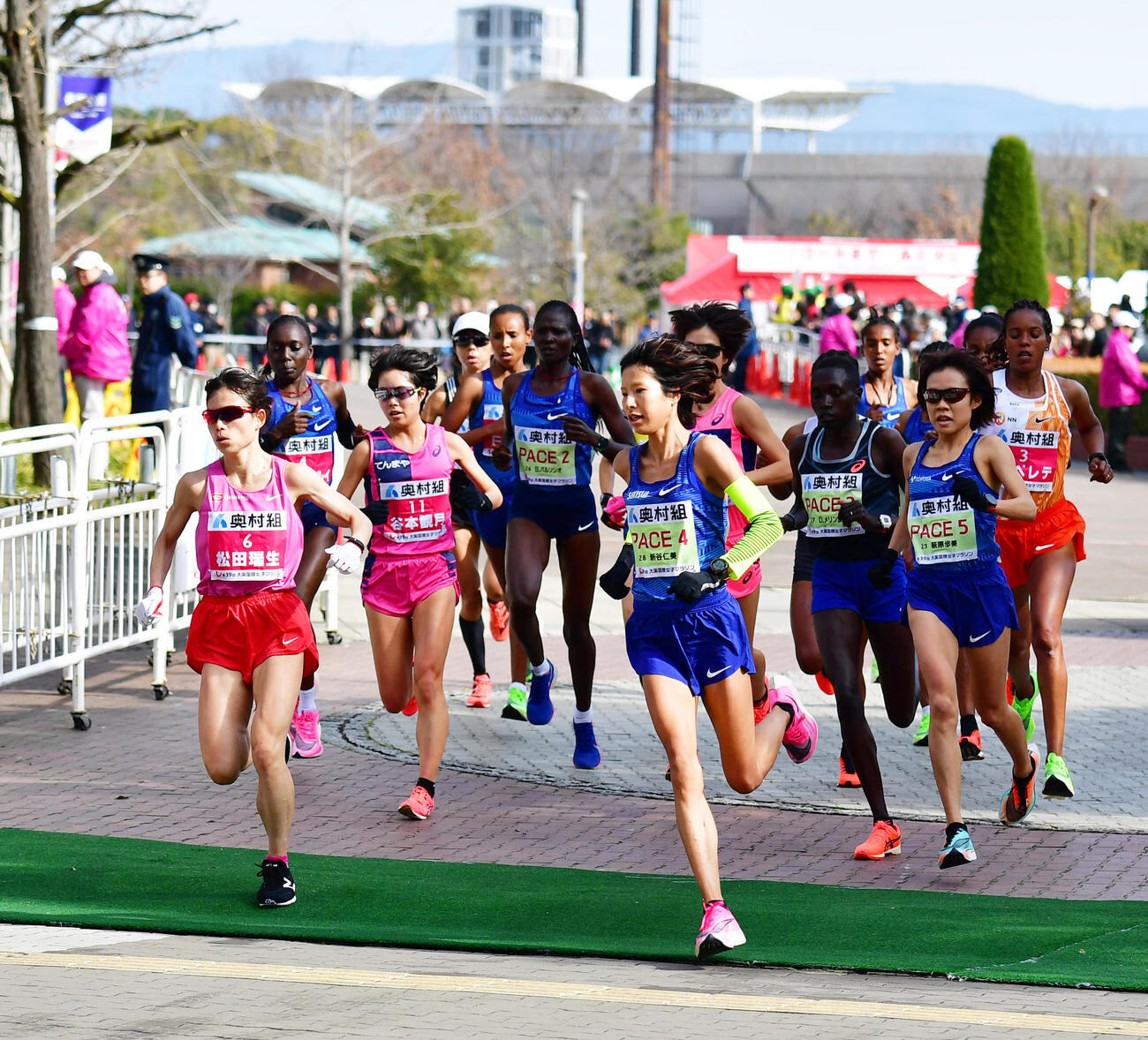
Both women went on to contest two marathons in 2022. Chepkemoi won in Enschede in 2:21:10 and then ran 2:25:12 in Berlin, but finished outside the top 10. Hailu, meanwhile, won in Rotterdam in 2:22:01 but then failed to finish in Chicago.
So this race will be a chance for redemption after both women had somewhat frustrating performances in their big city races at the end of last year. If Chepkemoi wins, she will be the first Kenyan winner of this race since Catherine Ndereba claimed victory back in 2006.
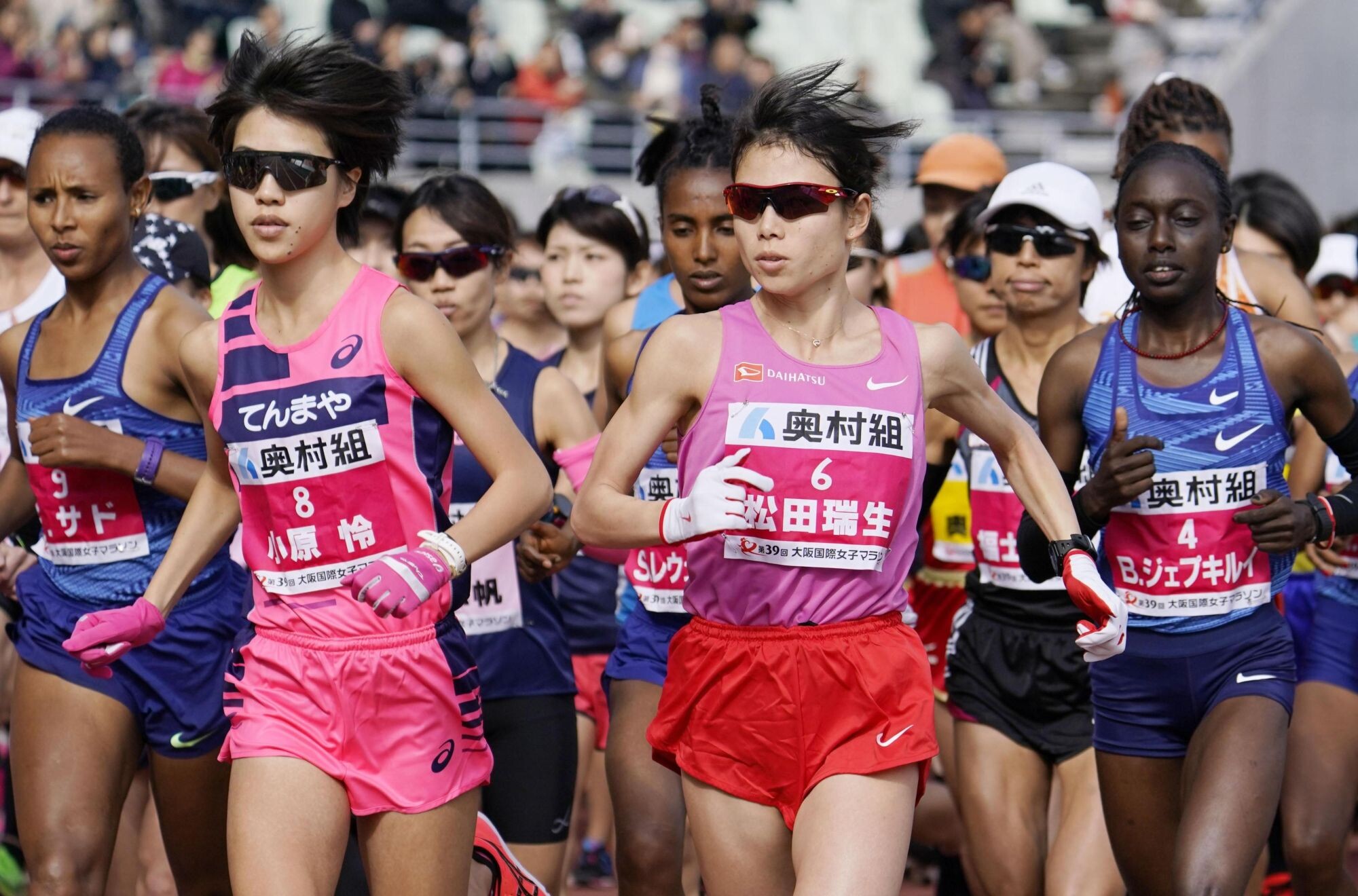
But Gola, Hailu’s fellow Ethiopian, should also be in contention for victory. A consistent performer, she has finished runner-up in four of her past six marathons. She set a PB of 2:20:50 when finishing second in Seville last year, and came close to matching that in Berlin seven months later with a 2:20:58 clocking to place fifth, comfortably ahead of Chepkemoi.
There is, as always, a strong contingent of Japanese runners in the field. For many, the focus will be on qualifying for the Marathon Grand Championship – Japan’s Olympic trial race – in October later this year. To earn a place in that race, the top three Japanese women must finish inside 2:28. Alternatively, if the first six Japanese women finish inside 2:27, they will qualify. Or if anyone places outside the top six Japanese finishers but still runs inside 2:24, they too will qualify.
Yuka Ando is the fastest Japanese woman in the field with her 2:21:36 PB from her marathon debut in 2017. A former third-place finisher in Osaka (2018), Ando achieved podium finishes in Nagoya in 2022 and 2020, finishing inside 2:23 on both occasions.
Sayaka Sato and Mao Uesugi should also be among the leading Japanese contenders. Sato finished sixth in Osaka last year, then went on to achieve a top-10 finish in Berlin, setting a PB of 2:22:13.
Uesugi, meanwhile, will be aiming to continue her progression in Osaka. She just missed the podium in 2021 but set a PB of 2:24:52. She then improved to runner-up last year, setting another lifetime best (2:22:29).
Organisers have made a few changes to the course for this year, which they say is just as fast as the old one, although there appears to be a few more inclines than before. The existing course record is 2:20:52, set last year by Mizuki Matsuda.
Elite field
Maurine Chepkemoi (KEN) 2:20:18
Haven Hailu (ETH) 2:20:19
Meseret Gola (ETH) 2:20:50
Yuka Ando (JPN) 2:21:36
Sayaka Sato (JPN) 2:22:13
Mao Uesugi (JPN) 2:22:29
Reia Iwade (JPN) 2:23:52
Sairi Maeda (JPN) 2:25:25
Haruka Yamaguchi (JPN) 2:26:35
Chiharu Ikeda (JPN) 2:26:50
Risper Gesabwa (MEX) 2:26:55
Munkhzaya Bayartsogt (MGL) 2:28:03
Shiho Kaneshige (JPN) 2:28:51
Alice Wright (GBR) 2:29:08
Sakiho Tsutsui (JPN) debut
Yumi Yoshikawa (JPN) debut.
by World Athletics
Login to leave a comment
Osaka International Womens Marathon
The Osaka International Ladies Marathon is an annual marathon road race for women over the classic distance of 42.195 kilometres which is held on the 4th or 5th Sunday of January in the city of Osaka, Japan, and hosted by Japan Association of Athletics Federations, Kansai Telecasting Corporation, the Sankei Shimbun, Sankei Sports, Radio Osaka and Osaka City. The first...
more...Kenyan Edna Kiplagat targets top spot at 2022 Boston Marathon: I am not done yet
Kenya's 42-year-old two-time world champion wants a second Boston Marathon title on April 18, and reveals how she balances motherhood with running.
Since winning her Boston Marathon debut in 2017, the Kenyan running star Edna Kiplagat has made the podium of the oldest race twice.
Despite being 42-years-old, the double world champion believes she can finish top of the podium again at the 2022 Boston Marathon on 18 April.
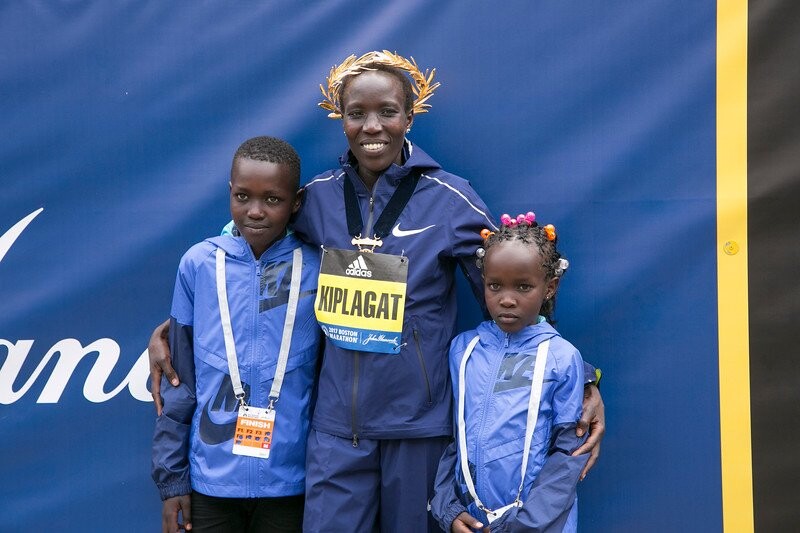
“If everything goes well as per my training and my body responds well, I’m hoping to be on the podium (in Boston) or do even better," Kiplagat said in an exclusive interview with Olympics.Com from her training base in Longmont, Colorado, USA.
“I enjoy running and as a professional athlete I believe running never stops."
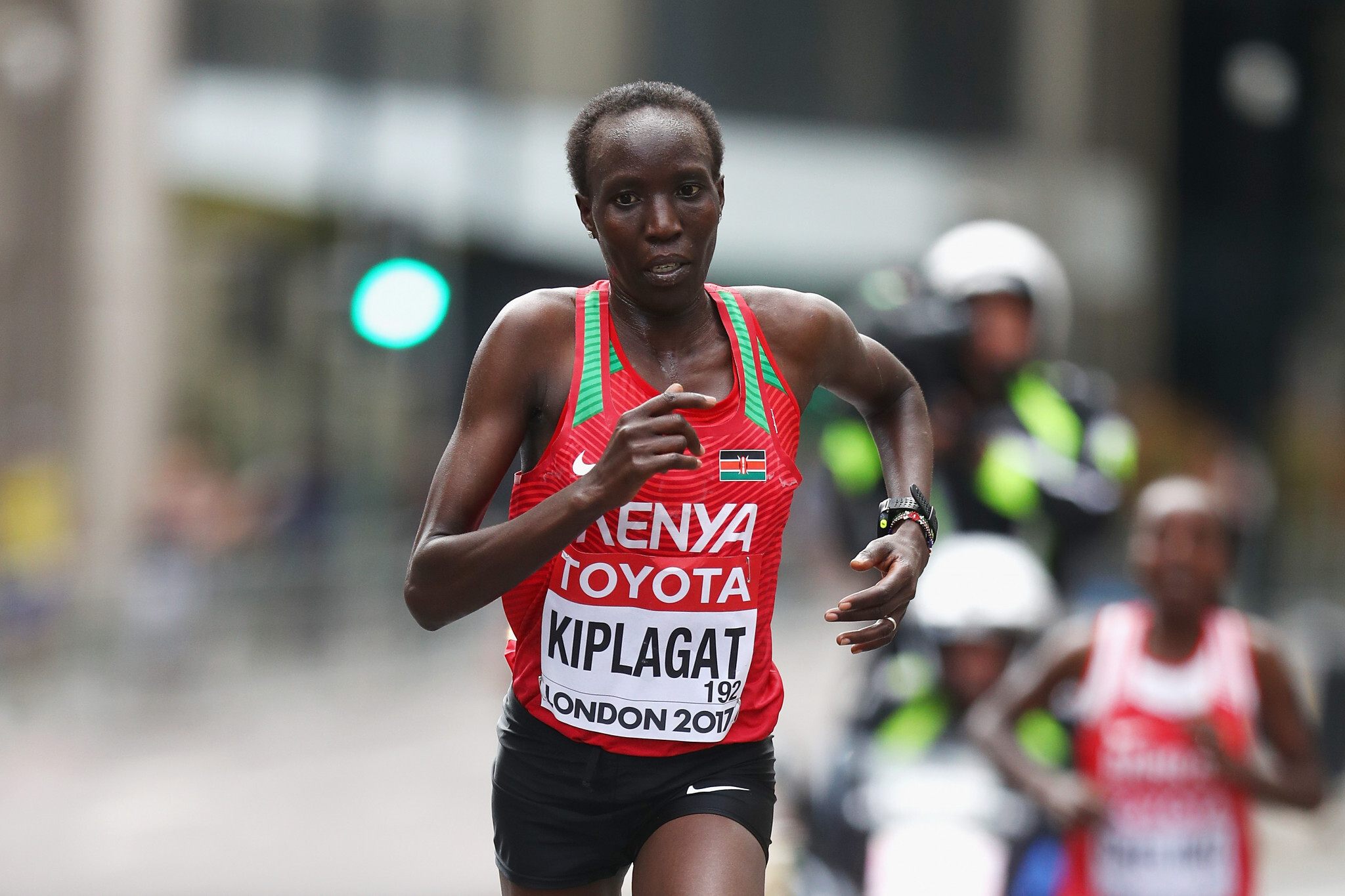
But even a podium place isn't a given in a star-studded women's field that also includes reigning Olympic marathon champion Peres Jepchirchir.
Running is a family affair for Kiplagat
Kiplagat remembers exactly when she started running, aged 16.
She is also very clear about when she first donned the Kenyan kit, saying: “I started representing Kenya in 1996 as a junior at the 1996 World (Cross Country) in South Africa."
What she doesn’t know is when she will finally hang up her competition trainers.
“I cannot say when I will stop. I know someday I will, but I am not done for now," she continued.
“I have my kids and other upcoming athletes looking up to me. I want to keep running to be a role model to them, motivate them and then use my experience later to help them in future.”
Kiplagat, who was scouted in high school by Brother Colm O’Connell - the legendary coach who moulded two-time Olympic 800m champion David Rudisha - sights her family as her key inspiration.
She is coached by husband and former runner Gilbert Koech, while her two children, Carlos (17), and Wendy (13), are already mastering distance running in school.
Kiplagat is also among a select group of athletes who have returned to the peak of their careers after giving birth.
“It’s not easy,” she admitted of raising her two biological children (born between 2004 and 2008) and three others that she adopted.
“After training, I have to come home and take care of my family as they are my priority. They need me and I must play my role as a mother.
“I have a great support team - my coach and my training partners, physio, and nutritionist who play an important role in my career. I get ample time to train and be with my family and even for recovery.”
Boston Marathon: A stepping stone to the Worlds and the Olympics
Two-and-a-half decades after her first race, Kiplagat is still runs between 110km - 130km in a week.
The passion and excitement the three-time World Marathon Major winner takes into every race has never wavered.
Last year at Boston she executed an incredible sprint finish to seal second behind Kenyan winner Diana Kipyokei.
“I know the course very well and I have had very good training in the build-up to this. I am expecting a very fast pace as most of the elites have run under 2.20 so they will push the pace from the start and even the course record may be lowered if the weather conditions are favourable,” the London 2012 Olympian said of what she expects to be a “very competitive race”.
Kiplagat has tuned up for her fifth Boston race with a ninth-place finish at the New York City Half Marathon on March 20.
“This was part of my speedwork to see how my body responds after the months of training."
The flame of ambition still burns brightly for Kiplagat, who in 2013 successfully defended her marathon world title.
A second win in Boston will make her only the second Kenyan woman to do so.
The first was 2008 Olympic silver medallist Catherine Ndereba, who clinched four-consecutive Boston titles.
Kiplagat, who finished fourth at the 2019 Worlds in Doha, now hopes to join the elite club of Kenyans who have won 13 of the last 21 Boston Marathon women's titles.
Kiplagat's 26-year career as a long-distance runner
Marathons are a gruelling endeavour that tests body and mind in equal measure.
But Kiplagat who honed her career in Kenyan running's spiritual home of Iten, and that may help explain her unbelievable longevity in the sport.
She is the first able-bodied athlete to record ten top-three finishes in World Marathon Majors New York, London, Boston and Tokyo, and wants to extend her top-flight marathon career - that dates back to 2010 when she won her debut 42km race in Los Angeles - to the Paris 2024 Olympics at least.
“I have been persistent with my routine. I believe in myself and fully trust my coach," she said.
"We have stuck to our plans, strategy on what we want to do and what we expect from each race. I always try to understand what is needed from me and plan how to execute my races on race day.
“I have tried to be consistent in everything I do. I am disciplined and I’m still looking forward to do even better.”
Younger athletes can also pick up valuable experiences from the running trailblazer.
“They need to have a plan for their races to avoid burnout. (They) must also have ample time for recovery, a good build-up and preparation. If you want to keep running for long it also needs a proper plan and patience with yourself.”
by Evelyn Watta
Login to leave a comment
Boston Marathon
Among the nation’s oldest athletic clubs, the B.A.A. was established in 1887, and, in 1896, more than half of the U.S. Olympic Team at the first modern games was composed of B.A.A. club members. The Olympic Games provided the inspiration for the first Boston Marathon, which culminated the B.A.A. Games on April 19, 1897. John J. McDermott emerged from a...
more...Brigid Kosgei seeks Kenyan Olympic marathon redemption
World record holder Brigid Kosgei has the unenviable task at the Tokyo Olympics of restoring Kenya's image in the marathon, which suffered a huge dent after the 2016 Rio Games.
Compatriot Jemima Sumgong became the first Kenyan woman to win an Olympic marathon gold in Brazil, but she subsequently tested positive for the endurance booster EPO and was banned for eight years.
Kosgei, who ran the fastest women's marathon of all time, clocking 2hr 14min 04sec in Chicago in October 2019, is eyeing a medal on Saturday in Sapporo to spare Kenyan blushes.
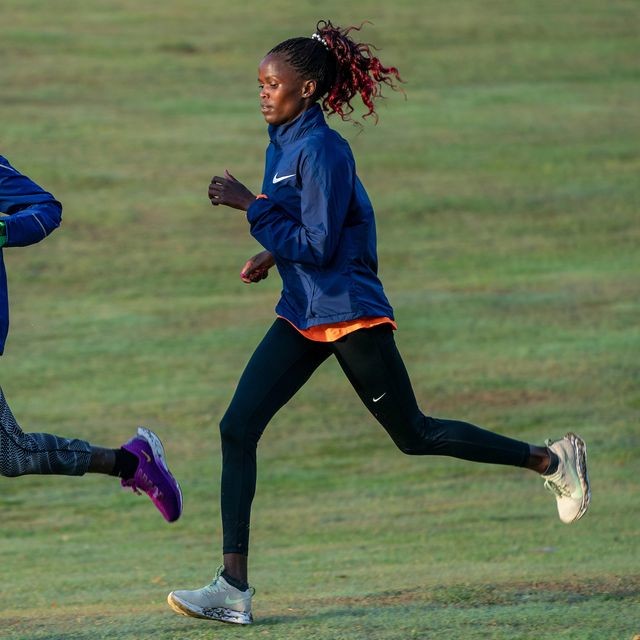
Organizers moved the marathons from the capital to avoid Tokyo's punishing summer heat but temperatures in Sapporo are currently in the 30s, which will make the race a tough challenge for the entire field.
"I know it wouldn't be easy winning the gold medal... but I will go out there and take my chances since this is my first Olympics," Kosgei told AFP.
Like so many athletes, Kosgei traveled to the Olympics after 18 disrupted months due to the coronavirus crisis.
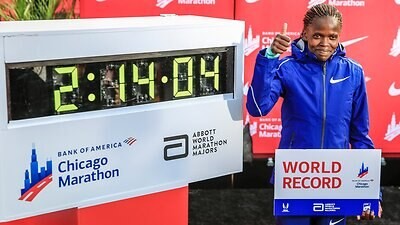
"It is unfortunate that we didn't have many competitions to help us prepare us for the Games since the Covid pandemic led to many race cancellations," she said.
A late starter in the sport, Kosgei -- a mother of eight-year-old twins -- had a difficult time growing up in a large family of seven children to a single peasant mother in Elgeyo Marakwet in Kenya's Rift Valley.
Like many of the girls in her village, Kosgei saw athletics as a vehicle to help her escape a life of destitution.
Her first marathon was in Porto, Portugal, in 2015 when the 27-year-old made a dream debut, winning the event in 2:47.59.
- 'Sharing the limelight' -
Kosgei credits her coach Erick Kimaiyo, a former winner of the Honolulu marathon and a runner-up in the 1997 Berlin marathon, for believing in her and helping to nurture her raw talent at his Kapsait training camp situated outside Nairobi at over 9,600 feet (2,900 meters) above sea level.
"I had grown up listening about the great marathon achievements of Catherine Ndereba and Tegla Loroupe, but I didn't expect that I could one day be sharing the same limelight with them," Kosgei said.
"But it was Kimaiyo’s belief in me that helped to propel me and see myself succeeding as a champion marathon runner."
The mentorship resulted in two contrasting victories at the 2016 and 2017 Honolulu marathons, with the difference in winning times between the two events -- 2:31:10 and then 2:22:15 -- further illustrating the power of the forged partnership.
She has won the London marathon twice and set a half-marathon course record of 64min 28sec at the Great North Run in northeast England in September 2019.
However, having missed the 2019 Doha world championships, Kosgei is hoping the Covid-affected Olympics will provide the big stage for her -- and redemption for Kenya.
Login to leave a comment
Asics The New Title Sponsor of Falmouth Road Race
ASICS has committed to a multi-year title sponsorship of the Falmouth Road Race, one of America's most iconic summer running events. The 7-mile road race, held each August on a coastal route from Woods Hole to Falmouth Heights on Cape Cod, had New Balance as its title sponsor from 2011 through 2019. The event was not held as an in-person road race in 2020 due to the pandemic.
"This partnership represents so much more than a sponsorship," explained ASICS Fitness Apps' general manager Alex Vander Hoeven through a statement. "It is a true example of how a world class event such as the Falmouth Road Race can collaborate with ASICS's global suite of products and digital services. We look forward to being on the course come race day and are honored to be part of the greater Falmouth Road Race community."
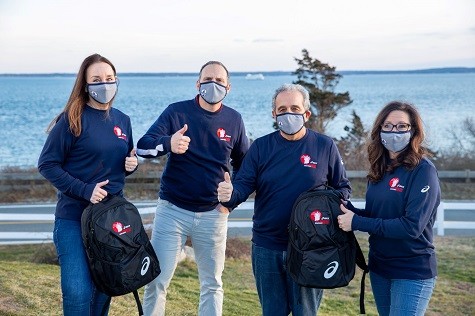
The Falmouth Road Race was founded in 1973 by the late Tommy Leonard, a bartender at the old Eliot Lounge in Boston. About 100 runners started that year in front of the Captain Kidd restaurant in Woods Hole and finished at old the Brothers 4 club in Falmouth Heights adjacent to Falmouth Heights Beach. Organizers use the same course today.

Some of the greatest distance runners in history have won the Falmouth Road Race including Khalid Khannouchi, Catherine Ndereba, Lynn Jennings, Benson Masya, Joan Samuelson, Bill Rodgers, Frank Shorter, and Grete Waitz. The 2019 champions were Leonard Korir of Colorado Springs, Colo., and Sharon Lokedi of Kenya. The 2019 race had 11,534 finishers.
"Our partnership is new, but we have long played host to ASICS athletes who have added much to our events," added Scott Ghelfi, president of the Falmouth Road Race, Inc., board of directors. "We look forward to having ASICS as a title partner that shares our commitment to health, wellness, and giving back to our community."
The 2021 ASICS Falmouth Road Race is scheduled for Sunday, August 15, pending approval from the Town of Falmouth.
by David Monti
Login to leave a comment
Falmouth Road Race
The Falmouth Road Race was established in 1973 and has become one of the premier running events of the summer season. Each year the race draws an international field of Olympians, elite runners and recreational runners out to enjoy the scenic 7-mile seaside course. The non-profit Falmouth Road Race organization is dedicated to promoting health and fitness for all in...
more...Twenty years, it’s been a good run, but as of May 7, 2020, LetsRun.com will be no more, LetsRun.com declares bankruptcy says Jonathan Gault
The worldwide economic depression that has resulted from COVID-19 has cratered the advertising markets and it’s no longer economically feasible to run the website.
“May 7, 2000, was a dark day for US distance running fans and me personally, so the 20th anniversary of that date is the perfect day to go out,” said LetsRun.com co-founder Weldon Johnson, who saw his Olympic dream denied on the streets of Pittsburgh at the 2000 US Olympic Marathon Trials on May 7 when only one man made the team. “The coronavirus canceled the Olympics and now it’s canceled LetsRun.com.
“It’s never been easy to make a living while giving away everything for free, but the decline in the online ad markets over the last few weeks has been unprecedented. Couple that with the fact that online ad marketplaces have gotten much better at tracking people in recent years and our revenue has almost entirely dried up. The advertisers now know that most of our visitors haven’t achieved the ‘LetsRun triple.’ While many have the potential to make well over $250,000 a year, the reality is most of them have never had a full-time job and are living in mom and dad’s basement still chasing that final PR before Father Time gets to them.”
Robert Johnson, Weldon’s brother and the website’s co-founder, didn’t want to talk on the phone. He issued the following statement via email.
Weldon keeps telling me our demise is all the result of COVID-19. That’s hard for me to believe, but maybe that’s because I live in Baltimore, where in the month of March we’ve had 18 killed by murder and only 3 by the coronavirus. Ironically, given the leading role we’ve played during the last two decades in the anti-doping movement, I blame our demise on Travis Tygart and USADA. Once Alberto Salazar got banned, the messageboard traffic really plummeted. People had been speculating about drugs in regards to Athletics West and Salazar since our founding, but now that that storyline has come to a conclusion, there isn’t anything left to talk about.
I begged Weldon to keep the site going until Salazar’s appeal is heard. If his ban gets overturned, the site could become profitable again. But with his baby due in early May, he told me can’t hold out any longer. He’s heard he can make six figures delivering for Instacart in San Fran and since he was used to sleeping in his car often high up in the mountains in Flagstaff, he’ll give that a go until the economy comes back. I feel for him as he won’t even get to see his daughter in person.

Weldon, the elder brother and brains behind the LetsRun.com operation, refused to take a negative view about the closure of the site.“This isn’t a day for ‘woe is me.’ It’s been a great run and I’m really proud of the contributions the platform has made to elevating distance running. When we started the website, the marathon world records were 2:05:42 for the men and 2:20:43 for the women. Now a man has run 1:59:41 and a woman 2:14:04 and we’ve certainly played a role in that, both by developing a platform where coaching advice could spread and by actually pacing two of those world records, one for Catherine Ndereba and one for Paula Radcliffe. Social justice warriors be damned, I’m most proud of the role we’ve played in elevating women’s distance running across the globe. That’s what I hope people will remember us for,” said Weldon.
by Jonathan Gault
Login to leave a comment
World marathon record holder Eliud Kipchoge and David Rudisha lead Absa initiative to boost education in Kenya
World record holders Eliud Kipchoge and David Rudisha are among five athletes signed up by Absa Bank Kenya PLC to power their “Torch of possibilities run” initiative that seeks to raise funds for education in Kenya.
ABSA Bank Kenya managing director and CEO Jeremy Awori said the bank also intends to partner with the ministries of sports and education in the initiative that seeks to raise funds for education, sports and the future for Kenyan children.
Others athletes included in the campaign are two-time world marathon champion Catherine Ndereba, former world 800 meters champion Janeth Jepkosgei and three-time Diamond League 3,000 meters steeplechase winner Paul Kipsiele Koech.
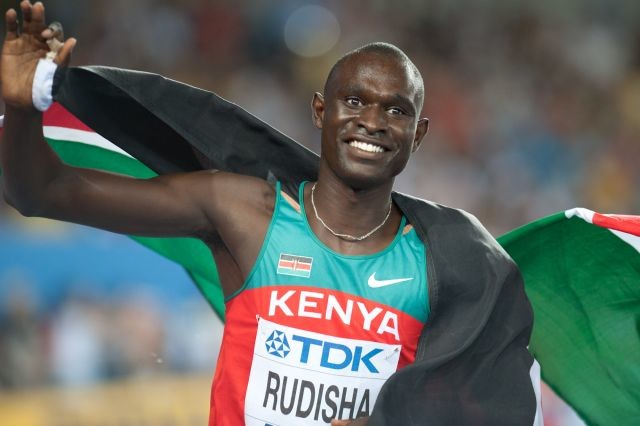
Awori said that the athletes will participate and champion the cause in five races to be held in Eldoret, Nairobi, Nyeri, Kisumu and Mombasa where they also intend to raise funds from entry fees and sponsorship from other corporates.

Awori added that the campaign is aimed at motivating emerging and future athletes, as well as millions of young Kenyans to aspire for greatness.
Eldoret will open the proceedings on March 21 followed by Nairobi on March 28 where entry fees across all the events is Sh1,000.
Awori said they will inject Sh45 million into the cause that is divided between two major projects with Sh20 million going towards the construction of ablution blocks in 40 primary schools across the country.
“Sh25 million will be used to set up 66 computer centers across the country in partnership with Computer for Schools project,” said Awori during the launch at Movenpick Hotel, Nairobi, that was attended by all the contracted athletes save for Kipchoge, who gave a recorded speech.
Sports Cabinet Secretary Amina Mohammed, Director of Secondary Education Paul Kibet, who represented Cabinet Secretary for Education George Magoha and Athletics Kenya CEO Susan Kamau, among others, graced the launch.
“We wanted to bring possibilities of life in education through sports and the place to experience that is young people,” said Awori, adding that they picked on the athletes because of their remarkable status in sport.
Awori highlighted the intention of the bank to keep differentiating itself through participating in projects that are attuned to the needs of the communities in which it operates.
In the last three years, the bank has invested Sh161 million to support 574 university students through the Absa Scholarship program.
Amina said the best gift the country can give to the youth is good education and health through programs like sports and hailed Absa’s initiative.
“Sanitation and especially ablution blocks have been a challenge in schools. Our first phase is the primary schools first moving to secondary hence Absa’s initiative will help us,” said Amina, adding that they intend to construct 19 sports academies across the country where children coming from such programs will continue to pursue their sporting talent.”
by Ayumba Ayodi
Login to leave a comment
Ethiopian Fatuma Sado won the 38th edition of Osaka International Women’s Marathon
Surging away from Rei Ohara after 38 kilometers, Fatuma Sado won the 38th Osaka International Women’s Marathon, an IAAF Gold Label road race, on Sunday clocking 2:25:39.
“I was very happy, but the time was not fast enough to be selected for the Olympic team,” said the 27-year-old Ethiopian who became just the fourth African to win the race after Lornah Kiplagat, Catherine Ndereba and Amane Gobena. “I want to run faster time in the next race.”
Rei Ohara of Japan was second, seven seconds behind the winner, with Bornes Jepkirui another 15 seconds behind in third.
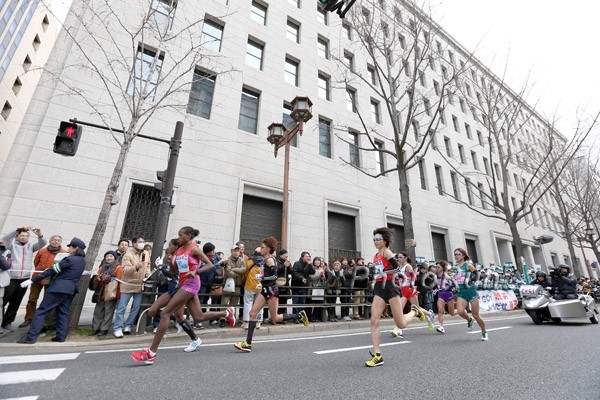
“I wanted to make my move at 30 kilometers,” Ohara said, “but I could not do it right. I tried my surge again at 35K, but it was far from decisive. I wanted to win, but could not close the gap at the end of the race.”
The pacemakers did an admirable job, bringing the lead pack through five kilometers in 17:00, 10 kilometres in 33:59, and 15 in 51:02. At 15 kilometers, the lead pack consisted of three pacemakers, an Ethiopian trio of Sado, Asefa Sutume and Abebech Afework, Kenyans Jepkirui and Jeptoo and Japanese Ohara, Fukushi and Hatsuki Omori.
Between kilometers 17 and 20, Jeptoo, Afework and Omori lost contact with the leaders. By half way, the lead dwindled to the pacemakers, Jepkirui, Sado, Fukushi and Ohara. After 25 kilometers, the pace started to slow, but Fukushi began to drift back anyway. At 30 kilometers, the final pacemaker dropped out and Ohara surged ahead, followed by Sado and Jepkirui.
Login to leave a comment
Osaka International Womens Marathon
The Osaka International Ladies Marathon is an annual marathon road race for women over the classic distance of 42.195 kilometres which is held on the 4th or 5th Sunday of January in the city of Osaka, Japan, and hosted by Japan Association of Athletics Federations, Kansai Telecasting Corporation, the Sankei Shimbun, Sankei Sports, Radio Osaka and Osaka City. The first...
more...Mary Wacera wins the Boilermaker 15k for the fourth time
Login to leave a comment
Ethiopian Buze Diriba Kejela has just confirmed she will be running the Boilermaker 15K
Login to leave a comment
Boilermaker winners plan to return, Mary Wacera going after a fifth win
Login to leave a comment


